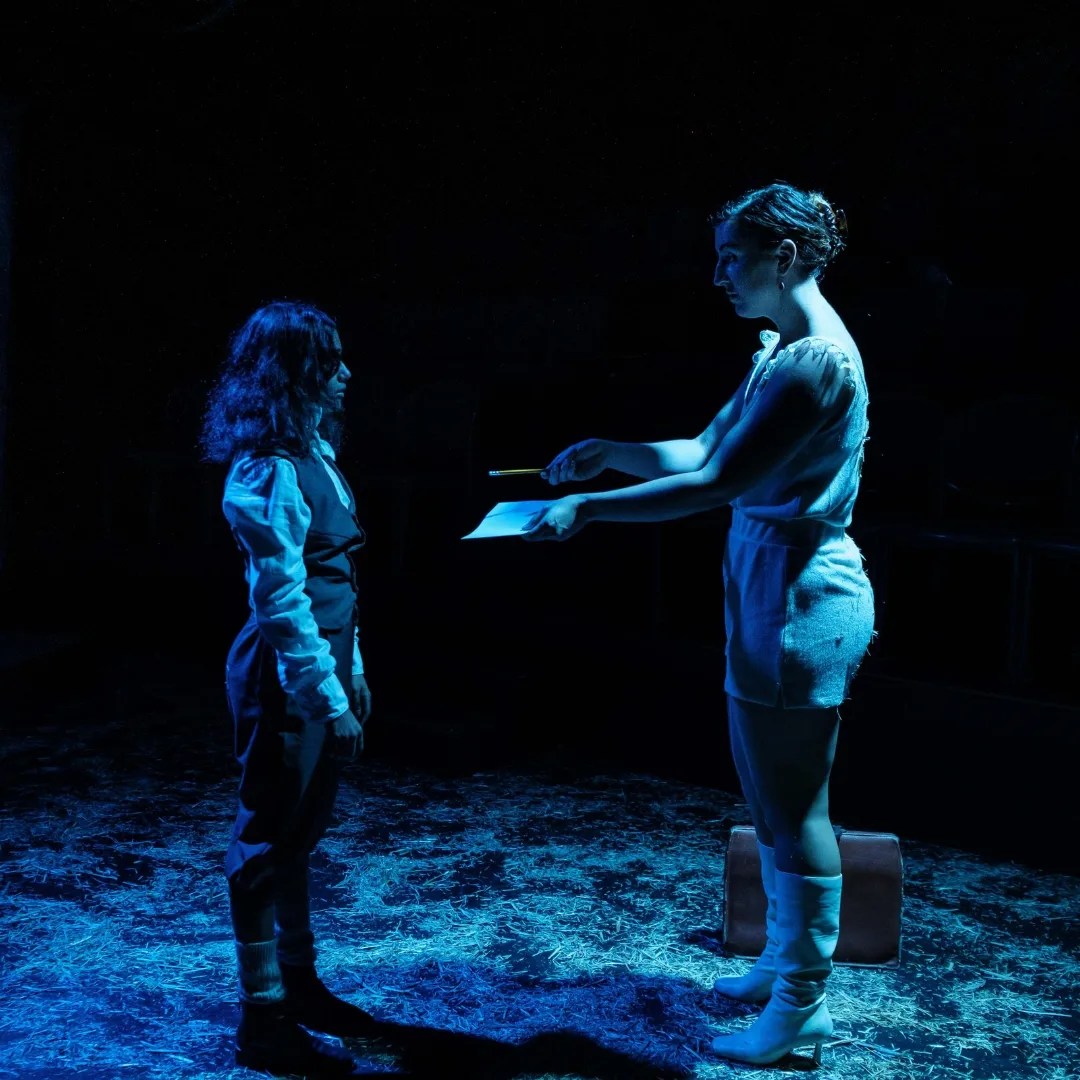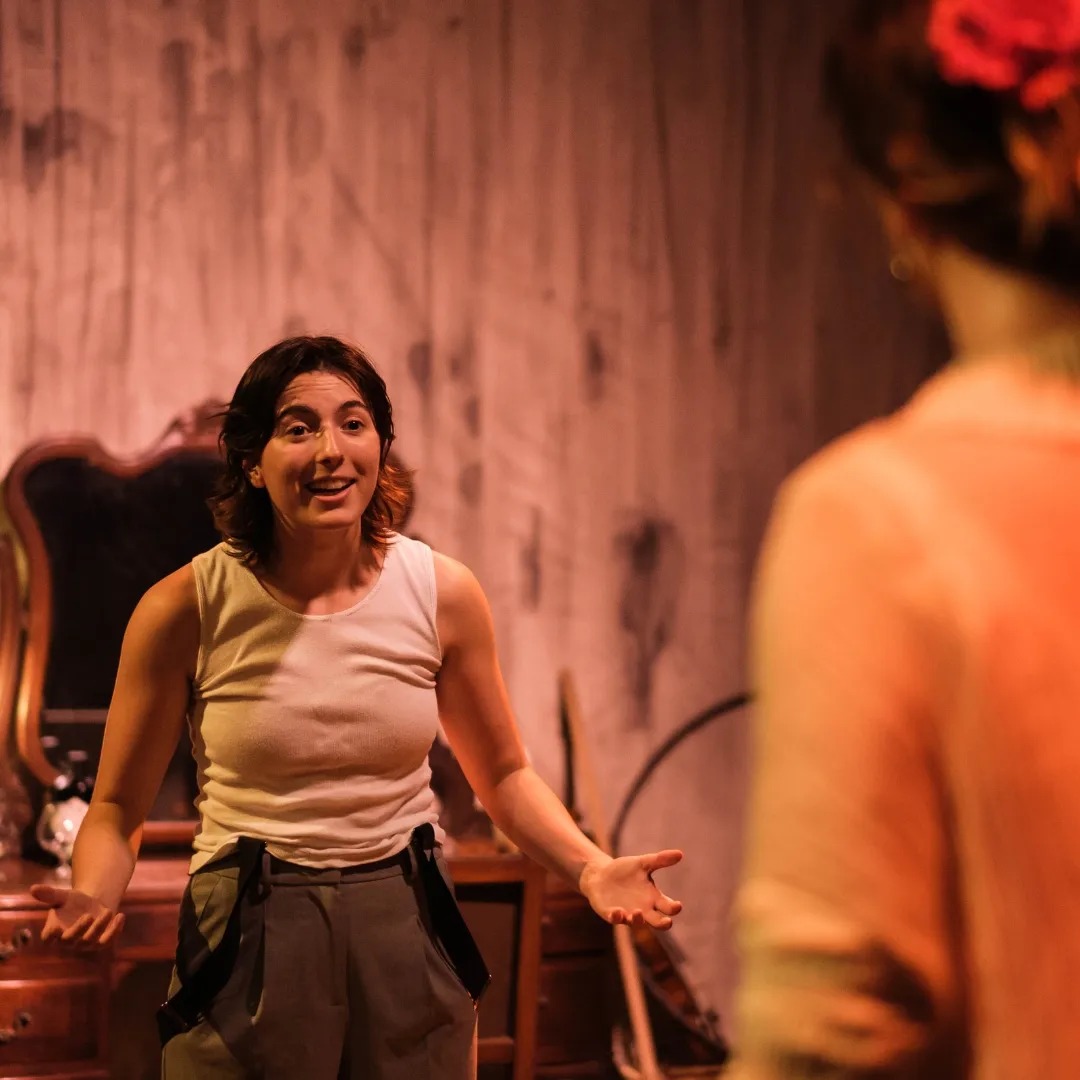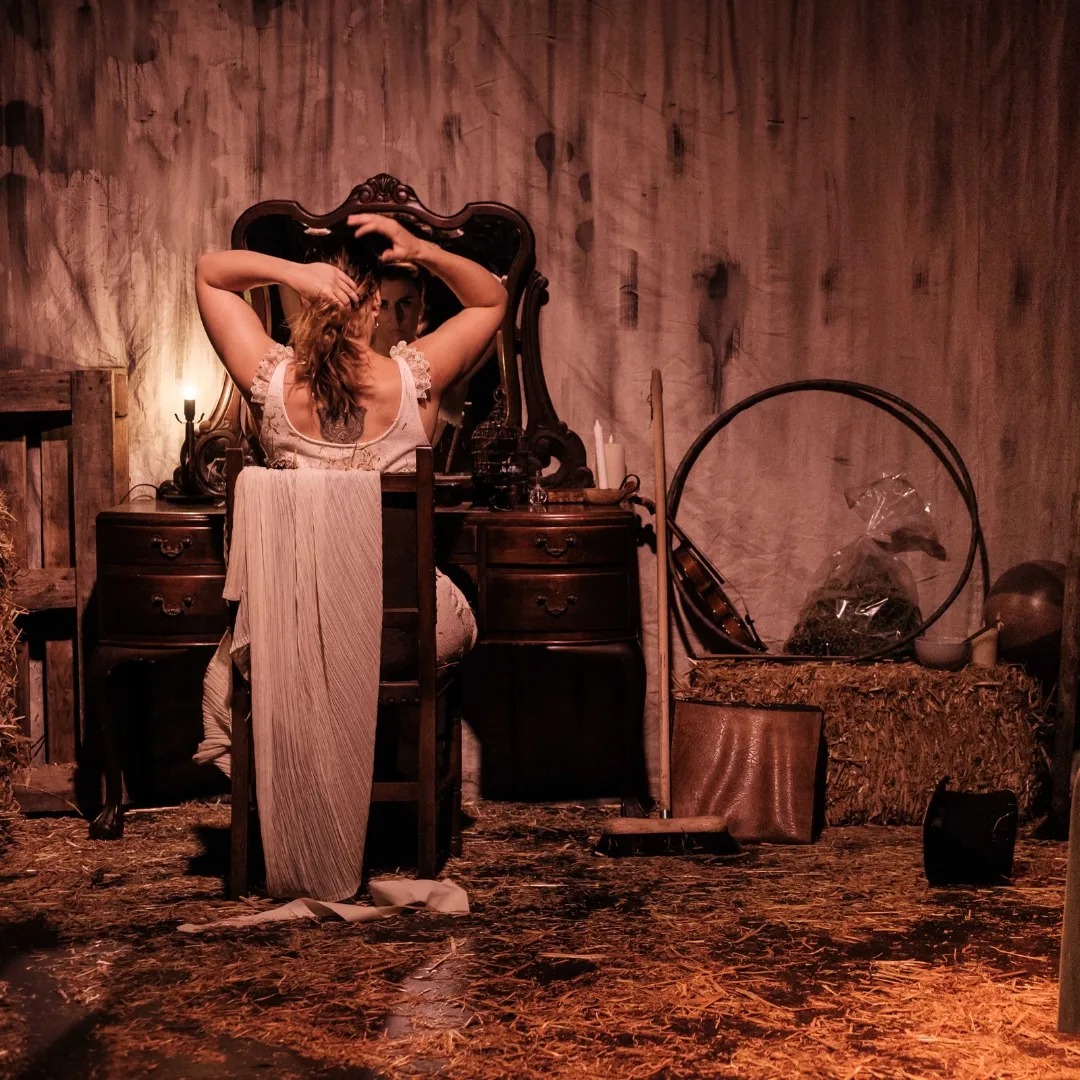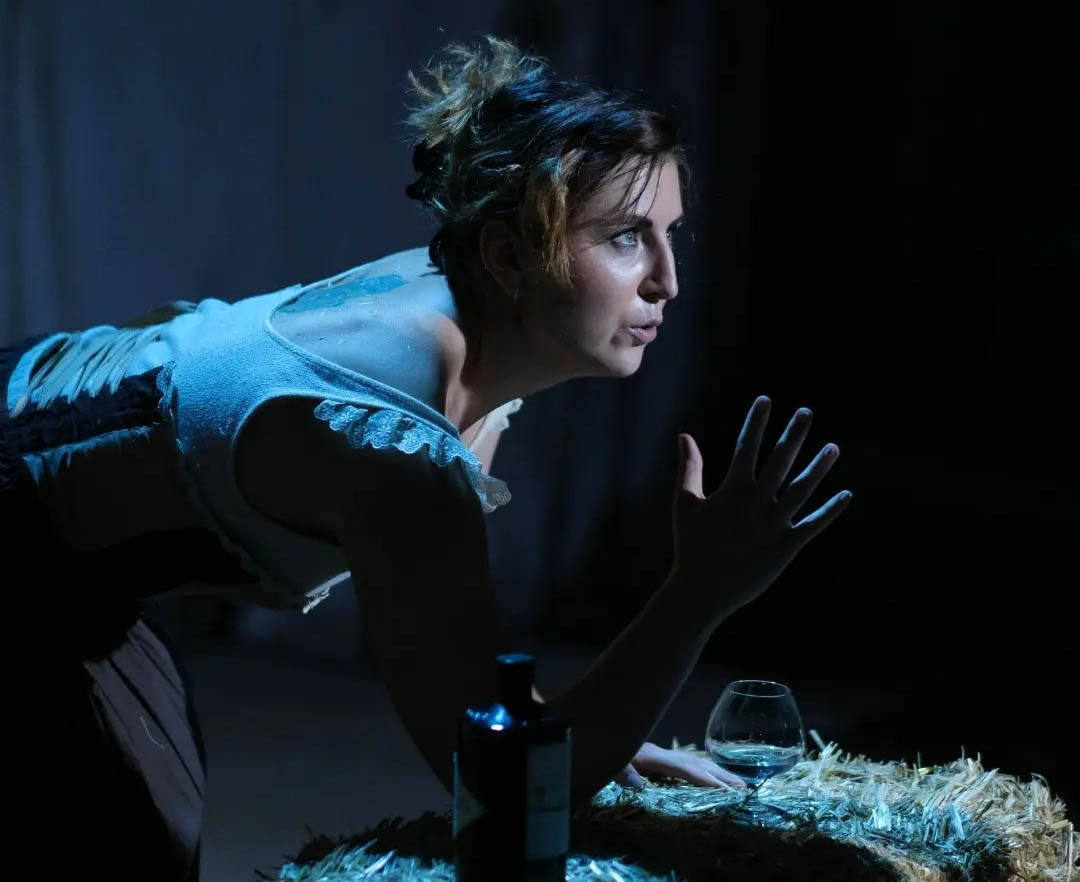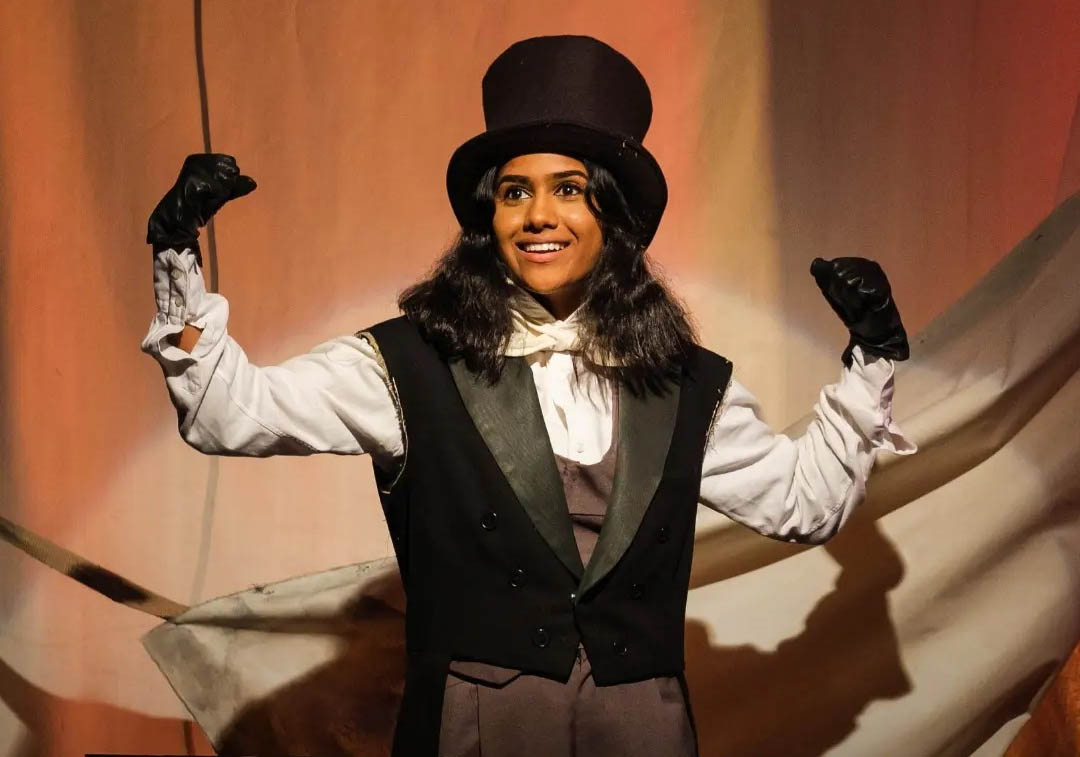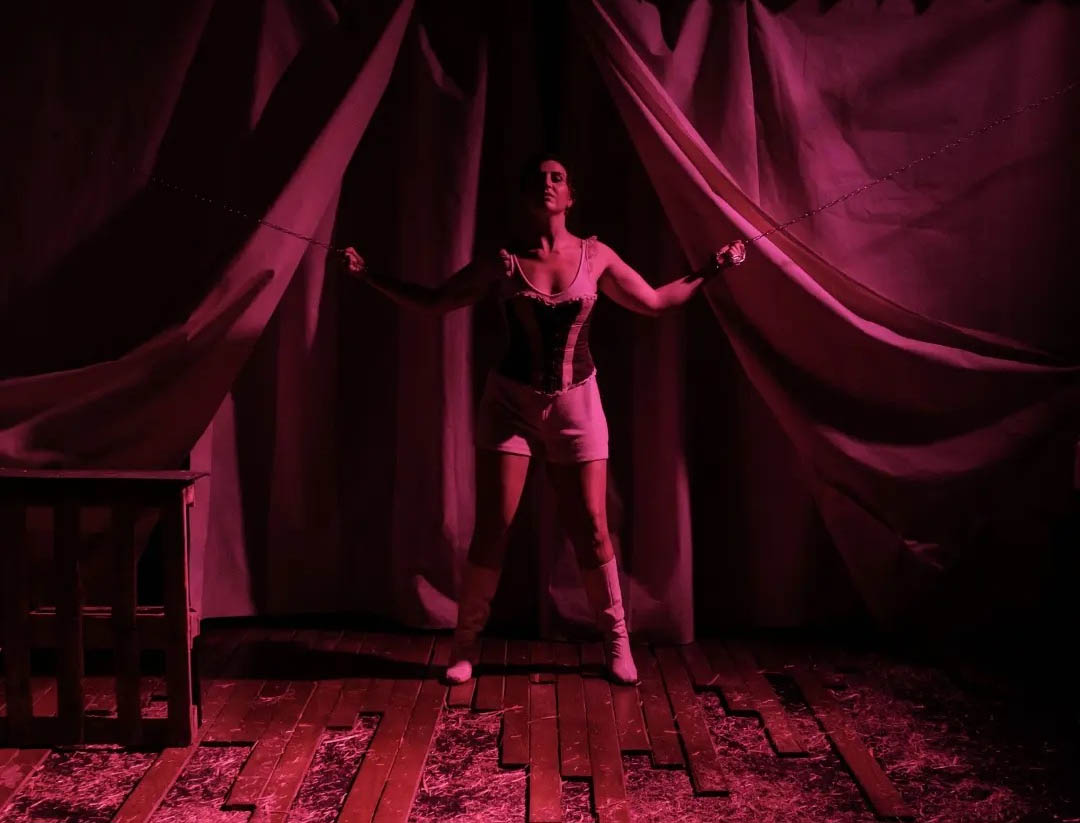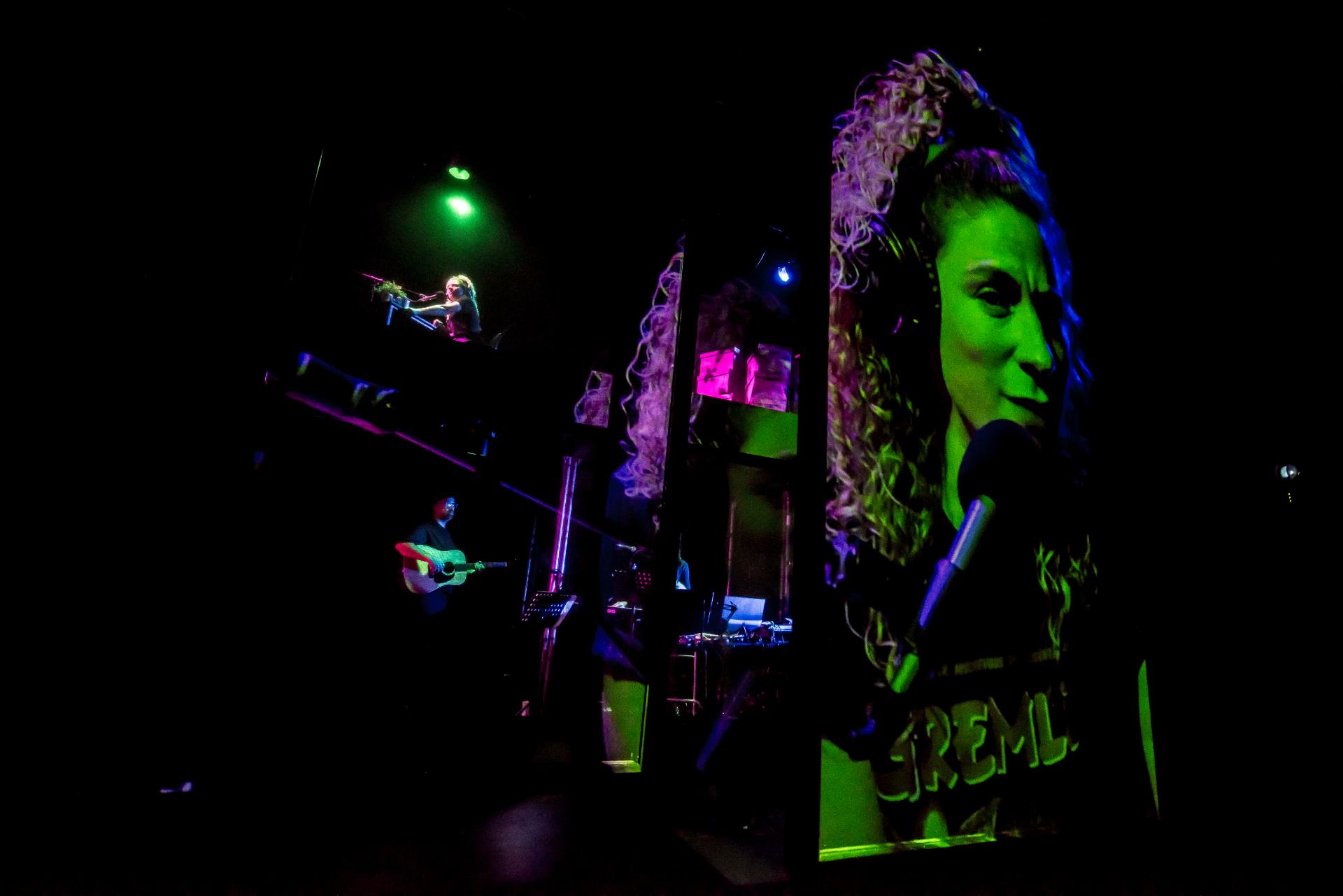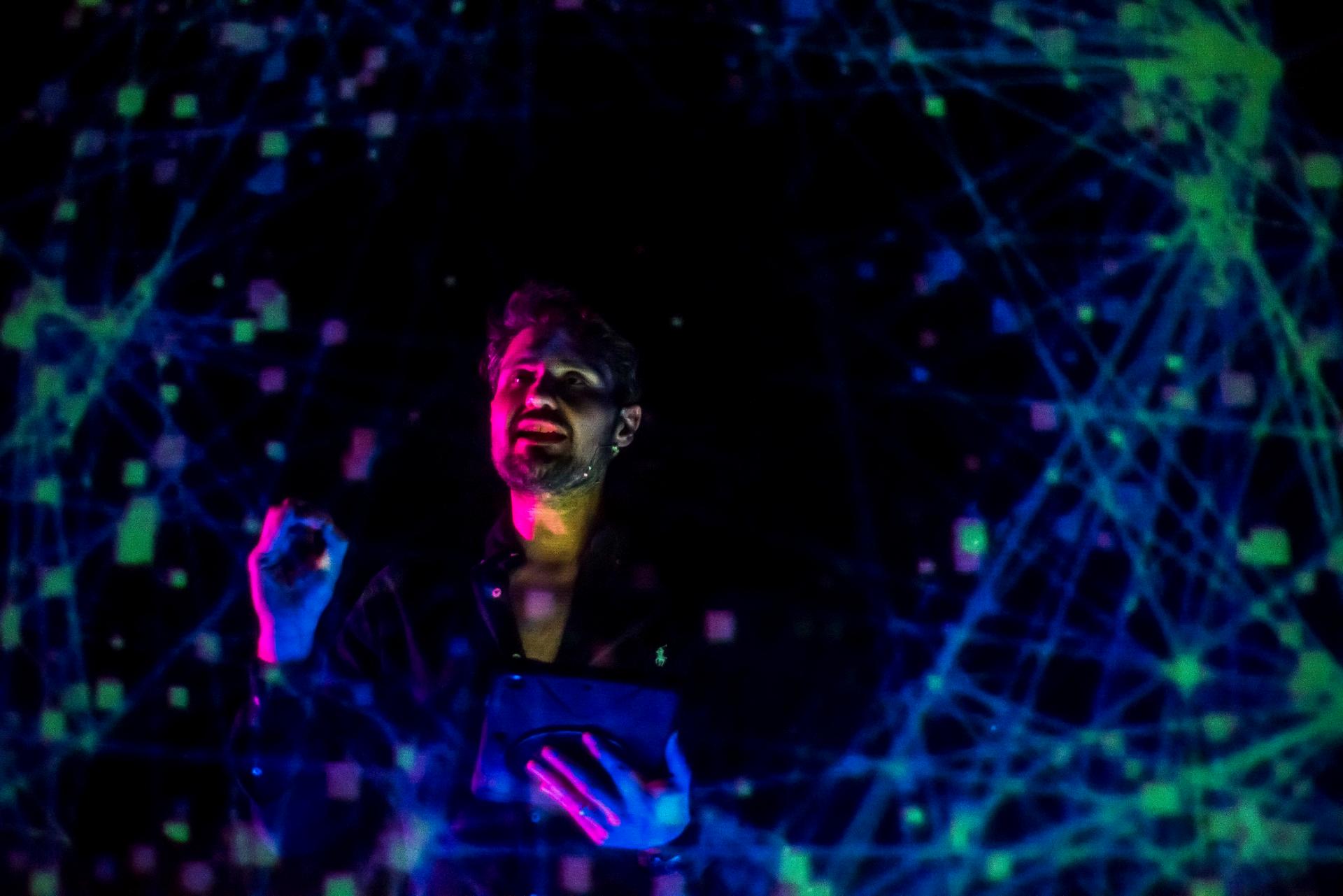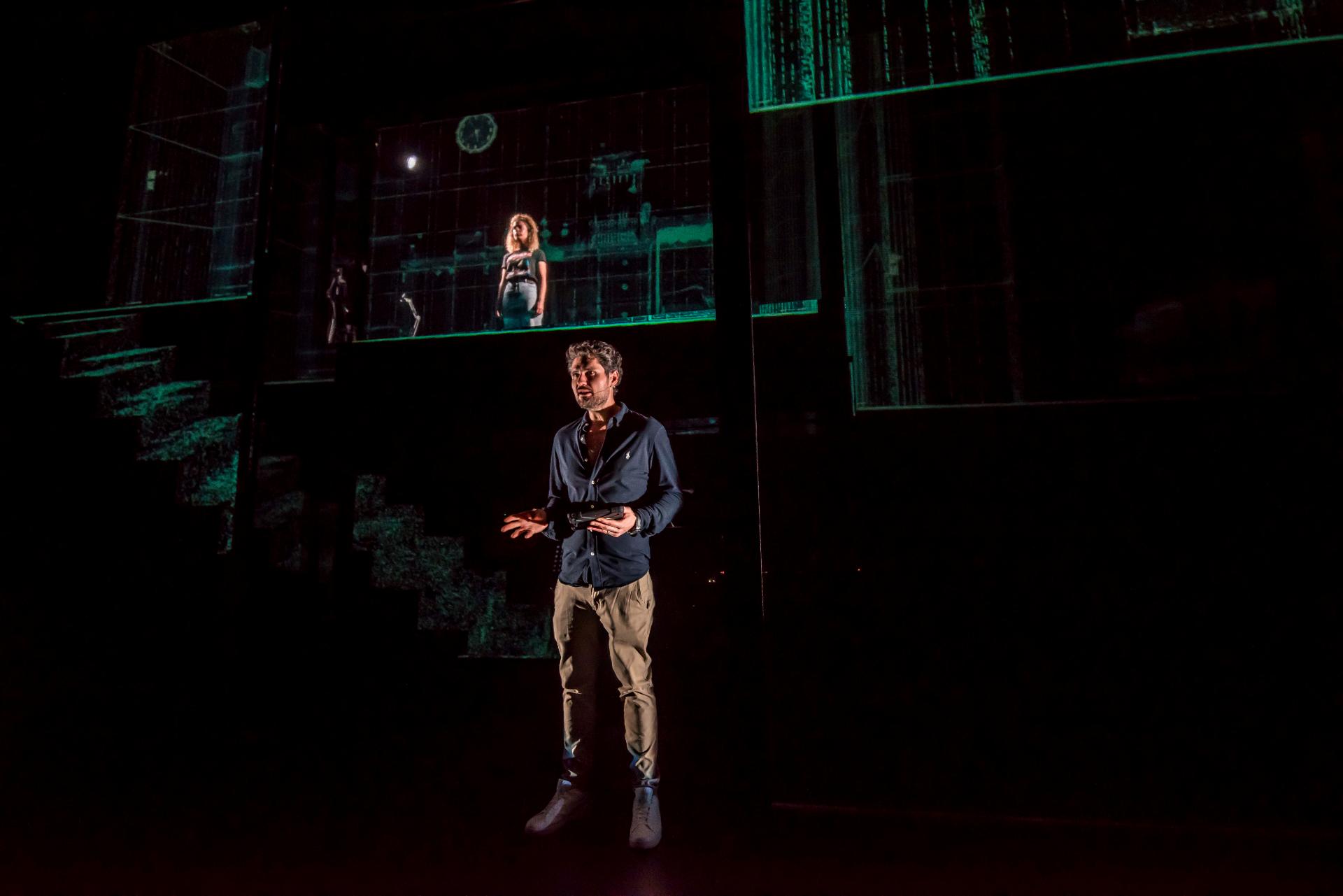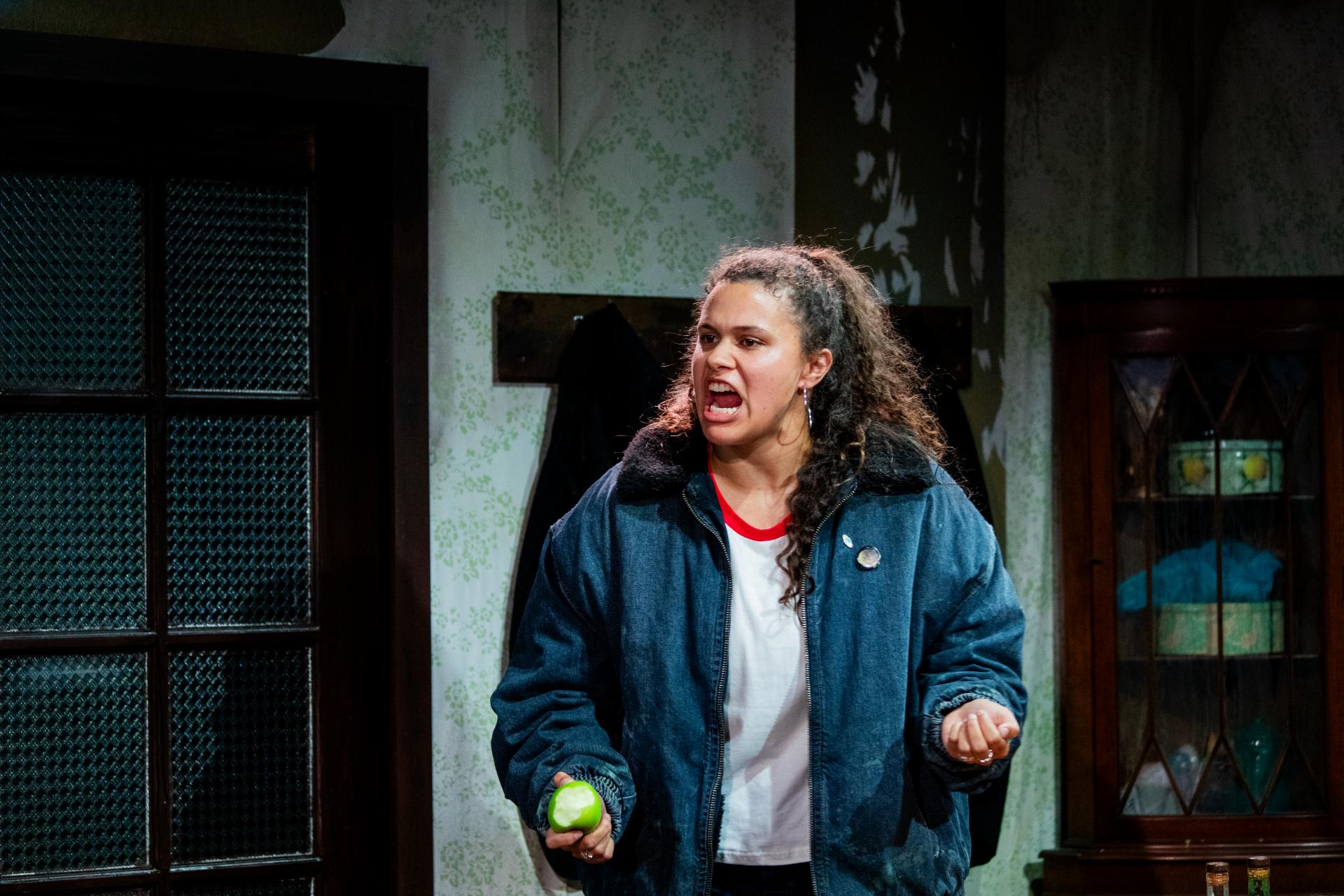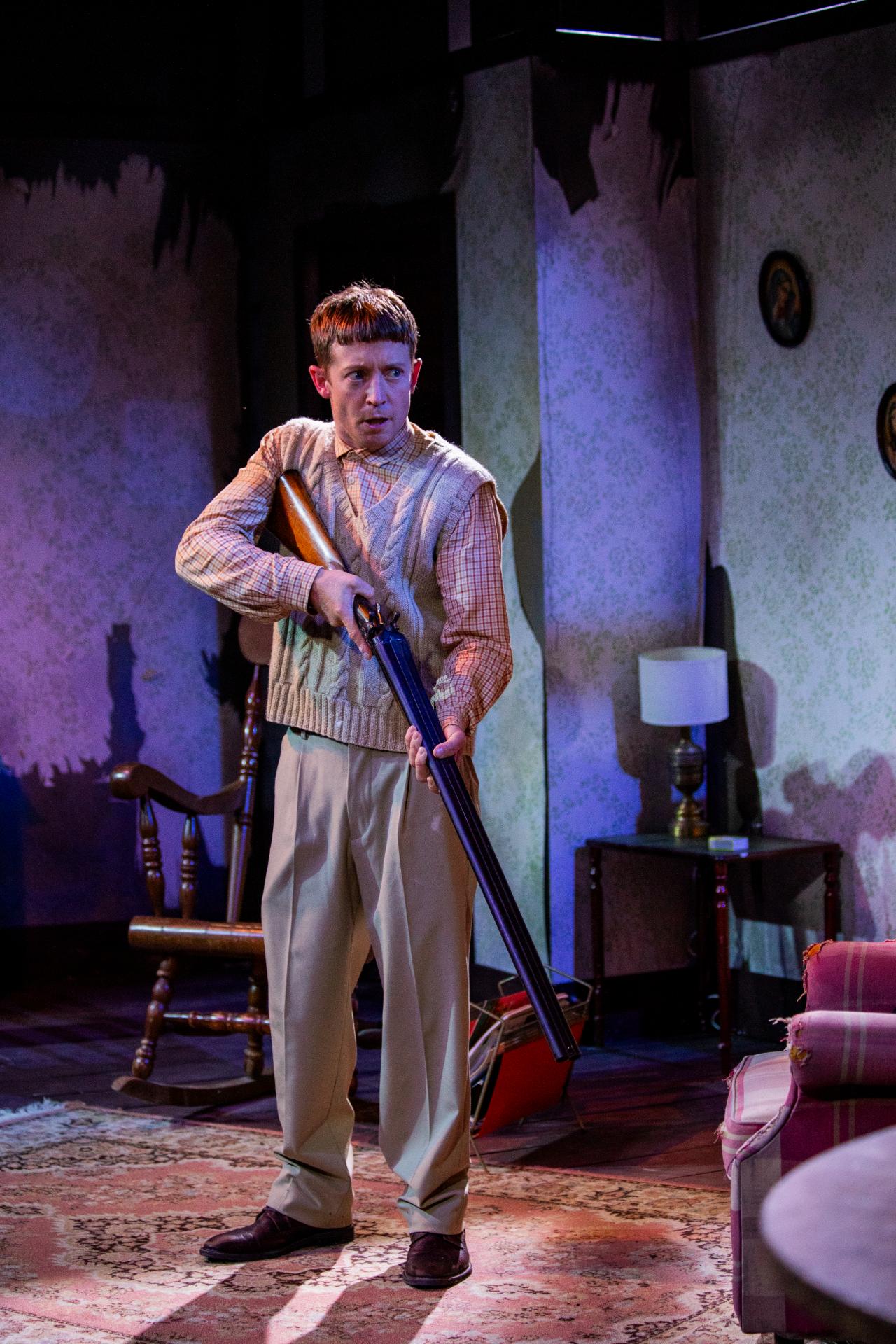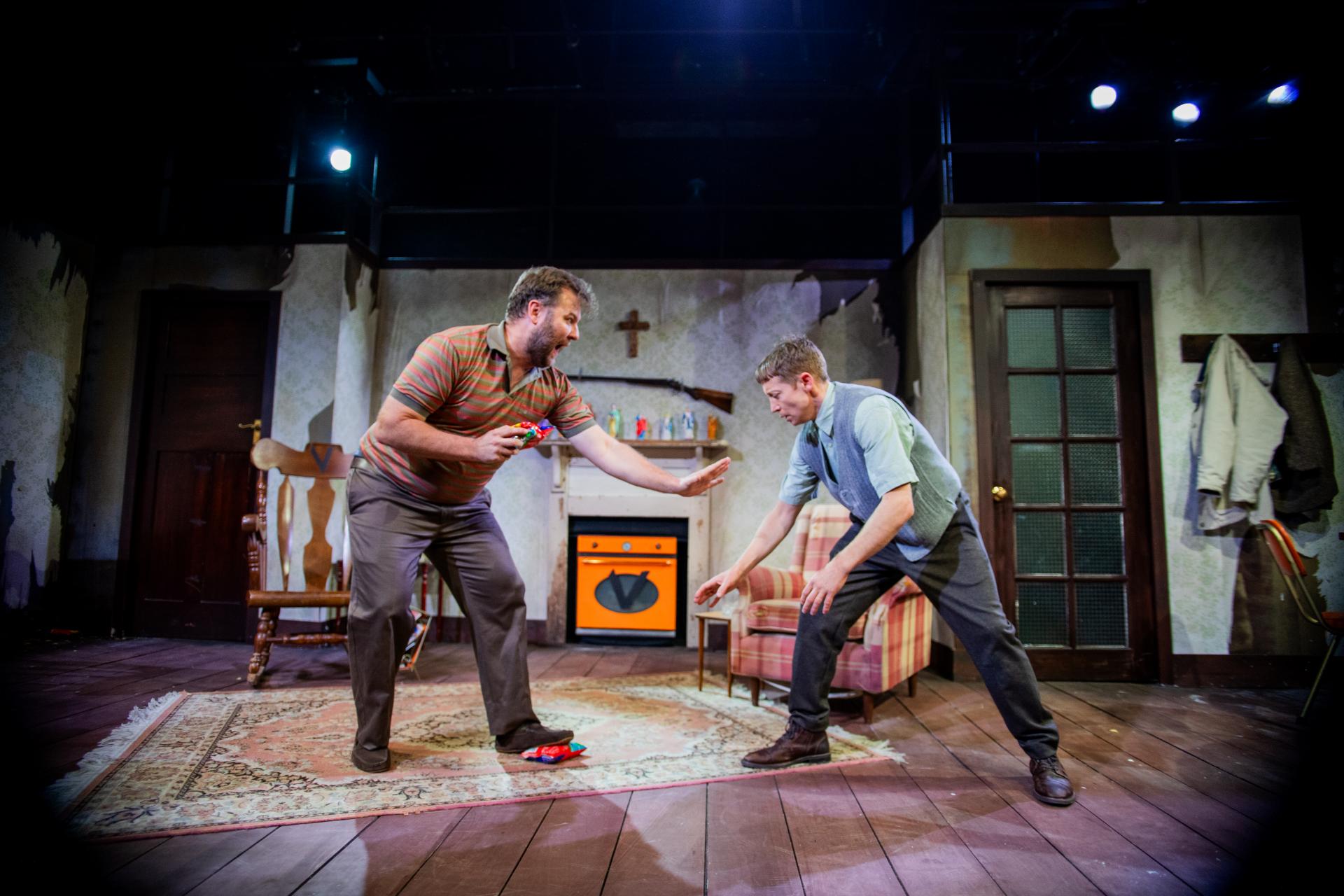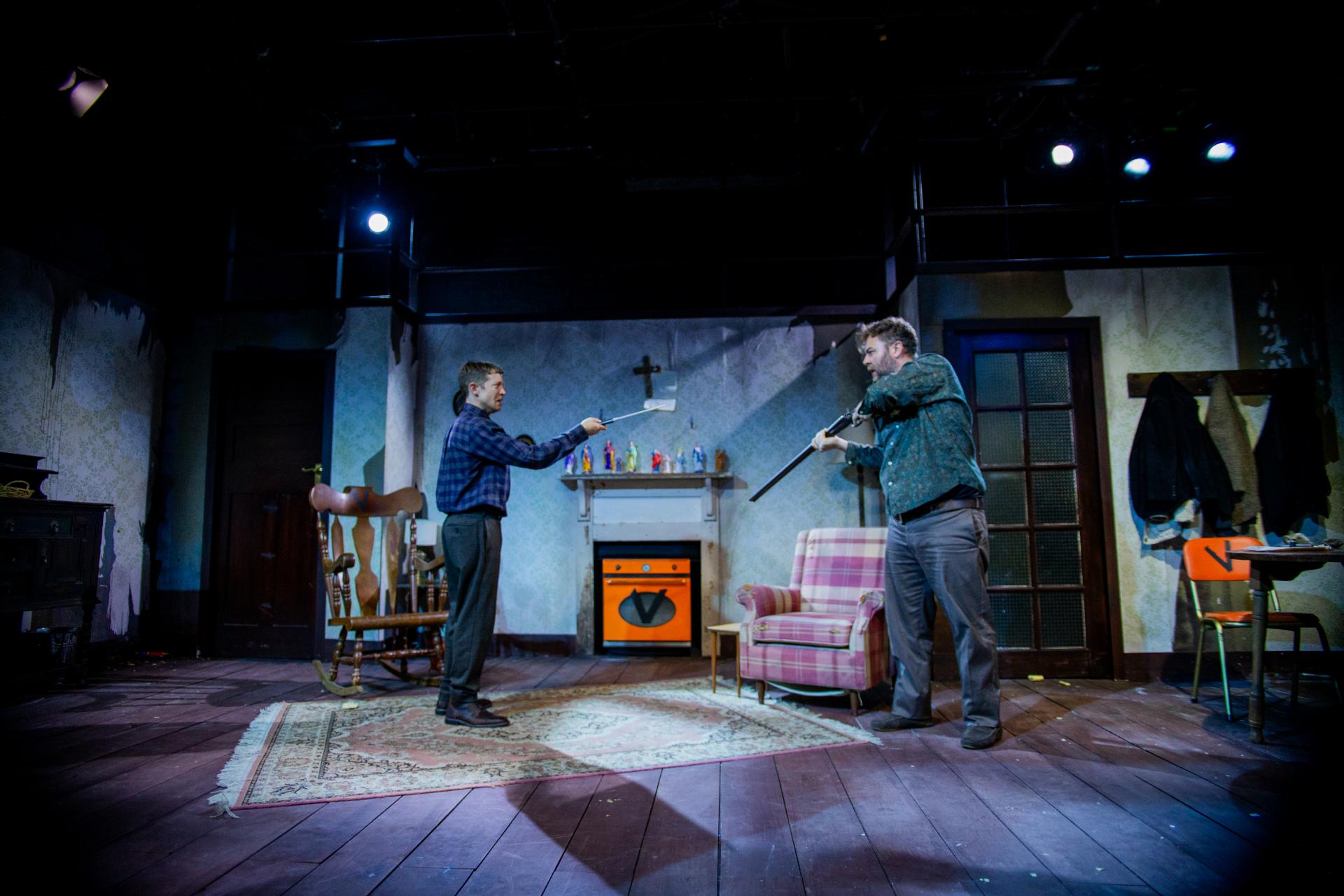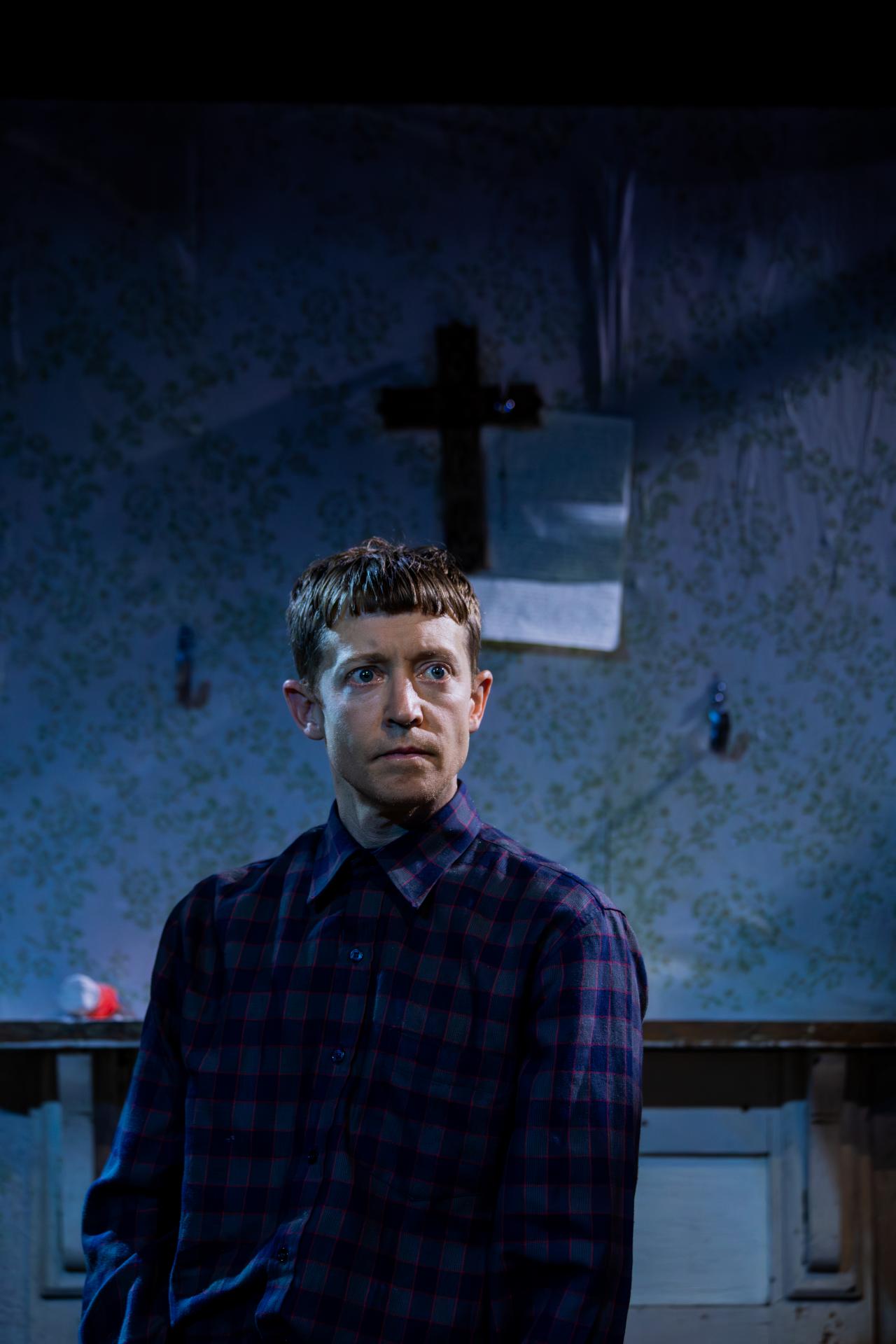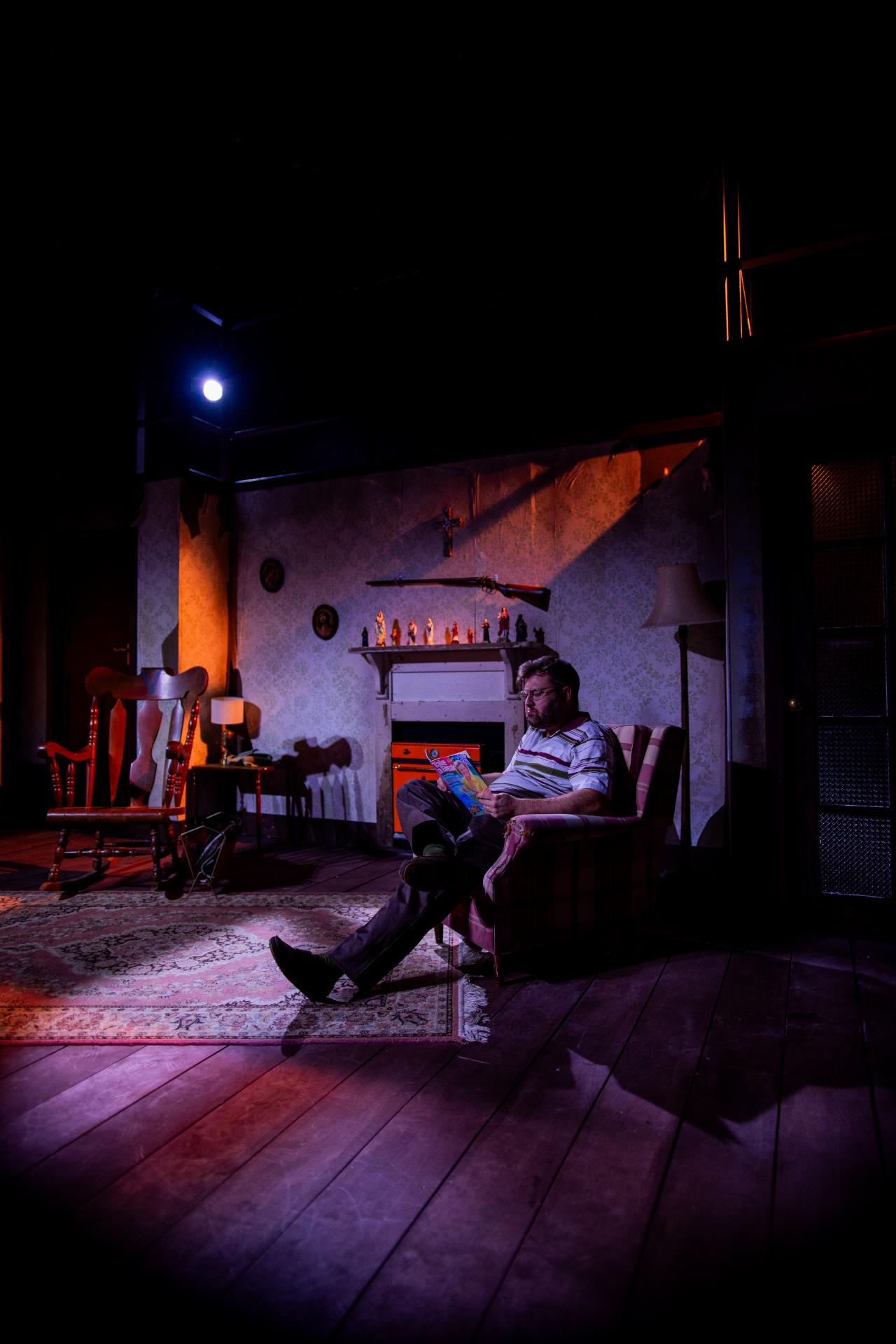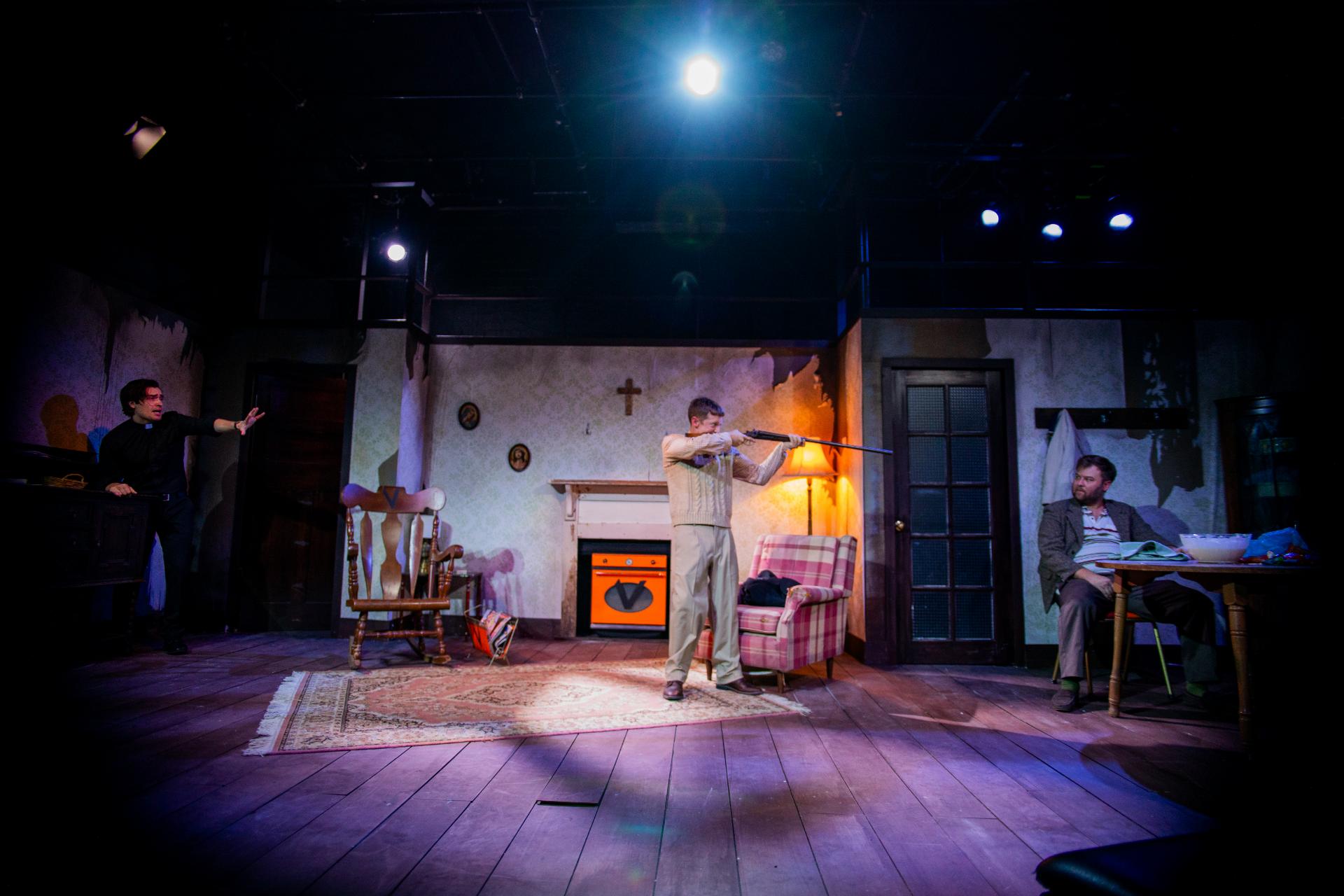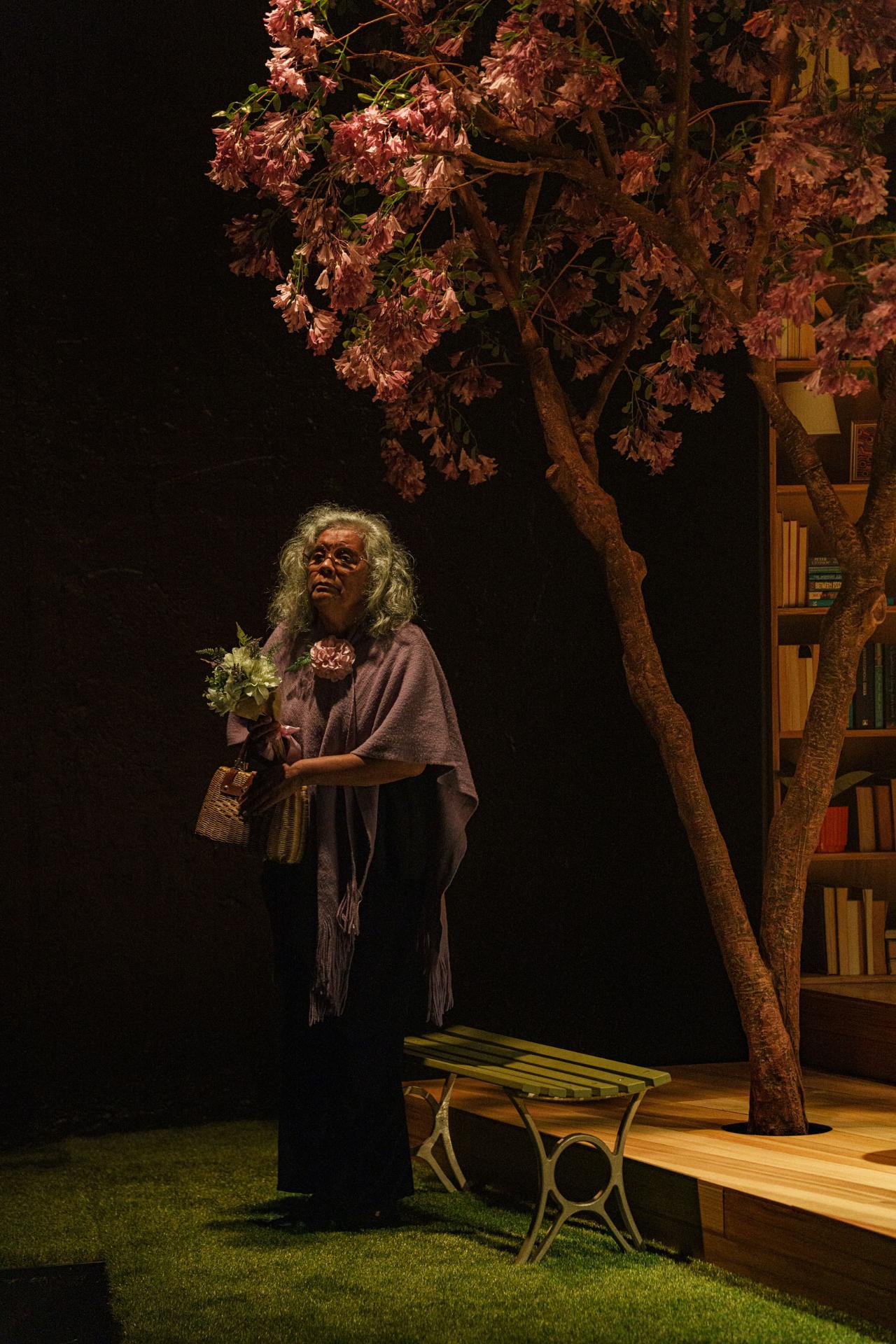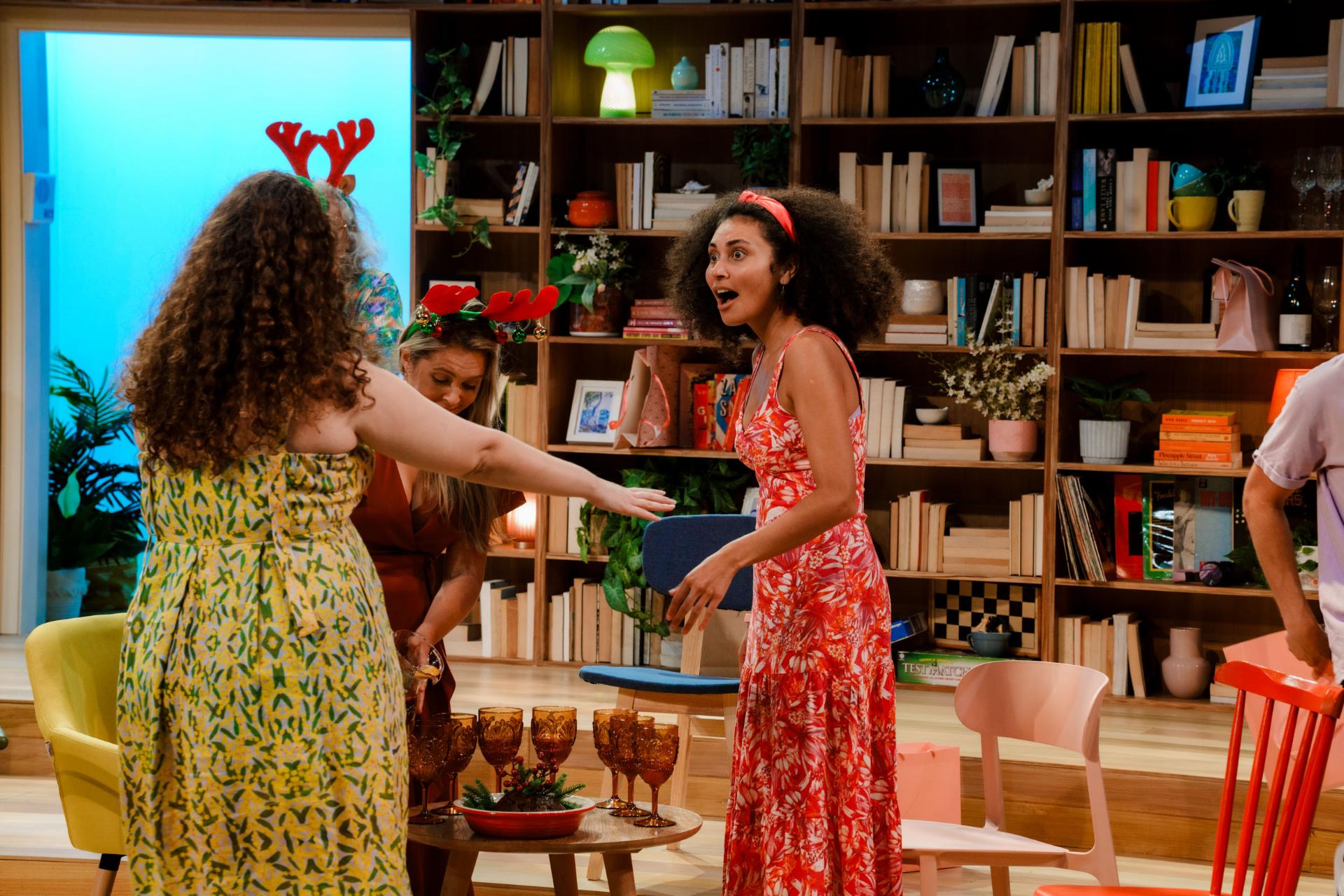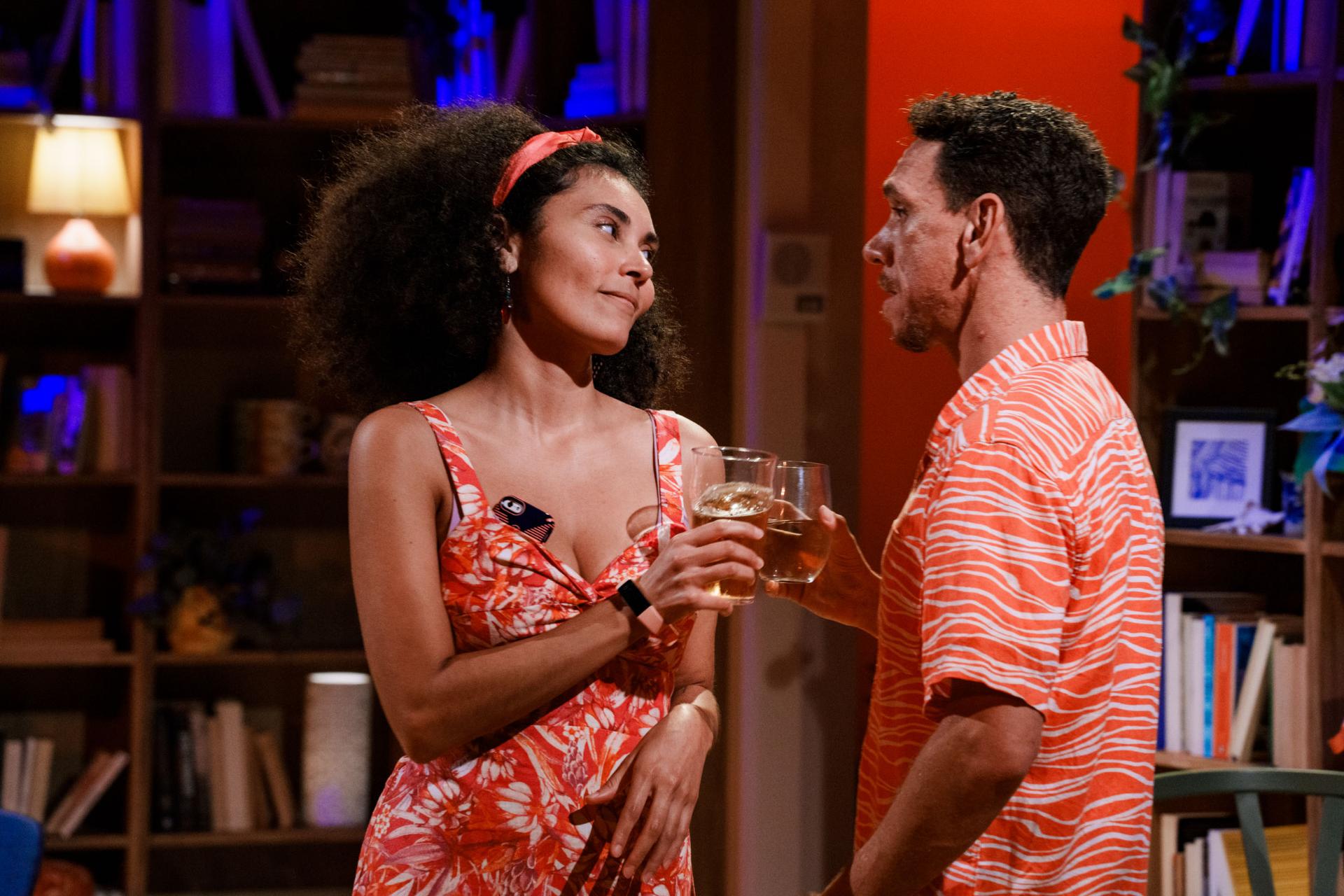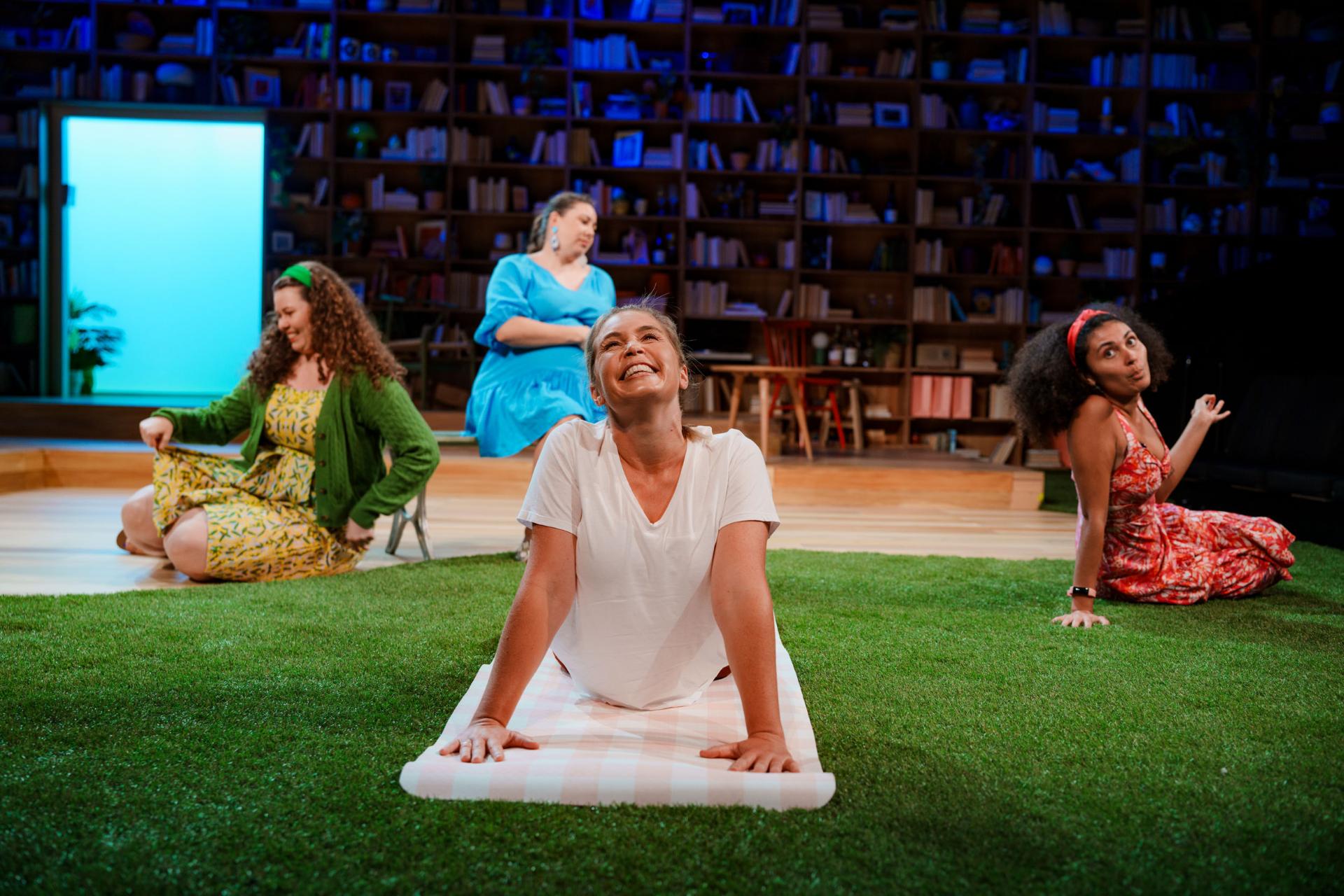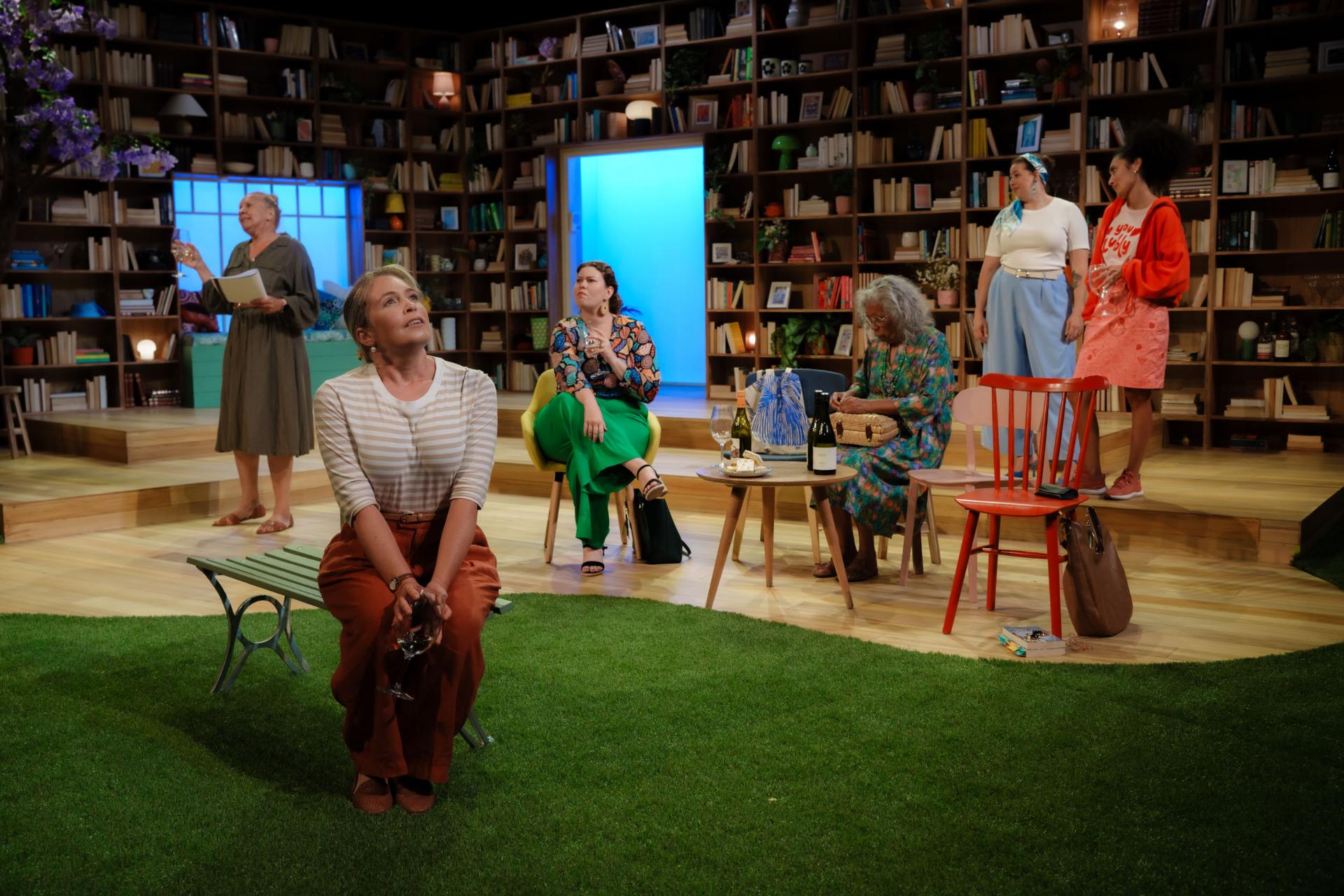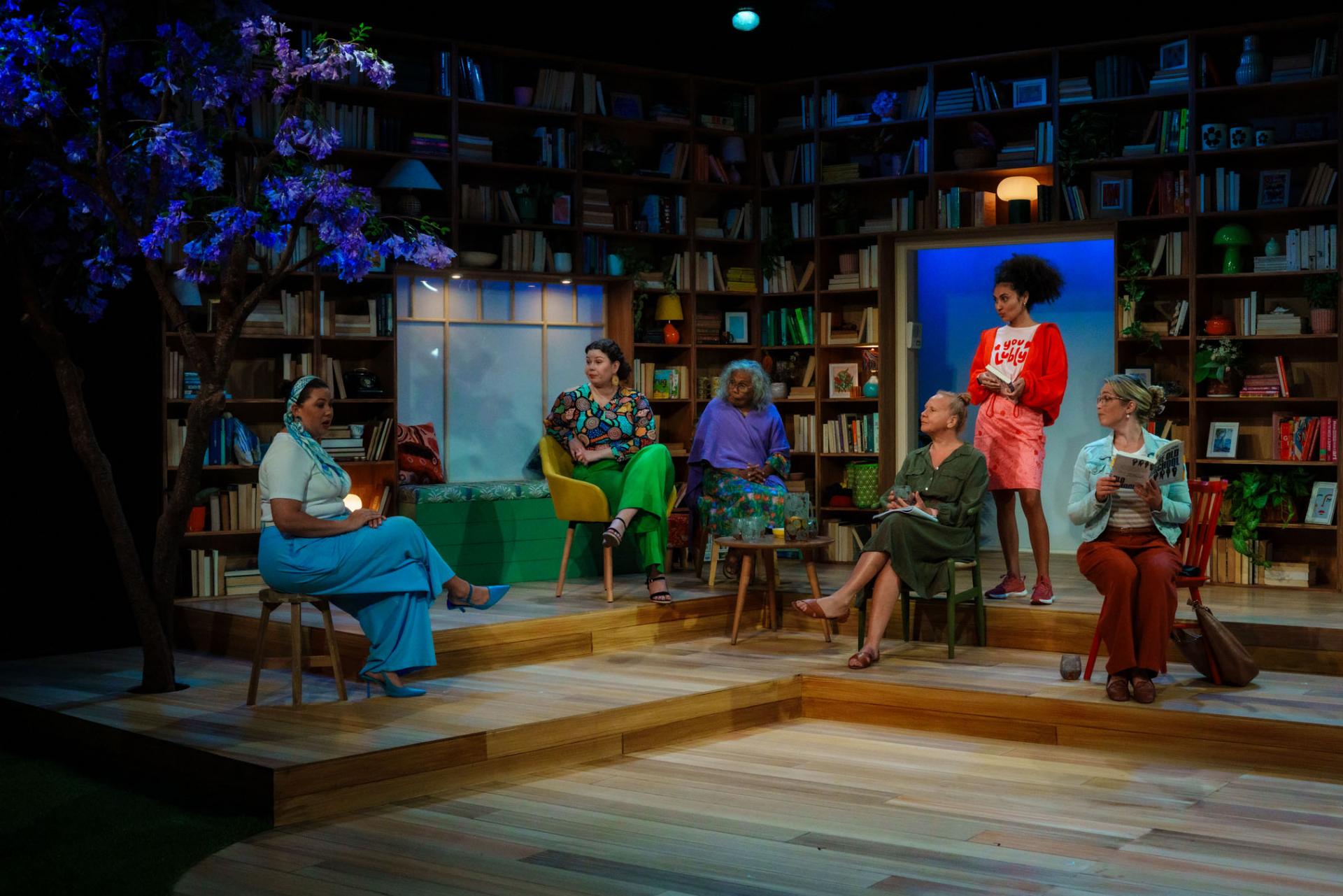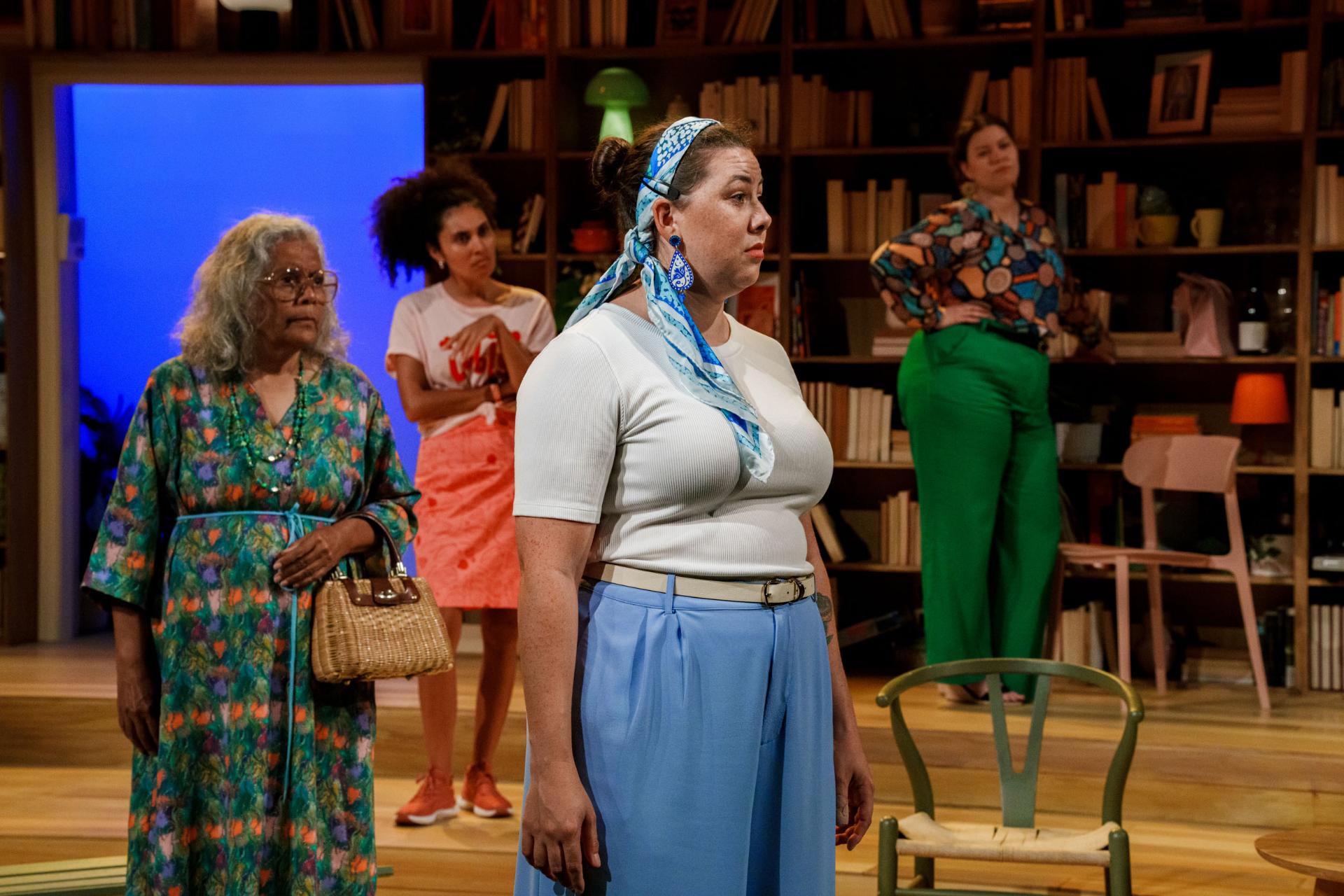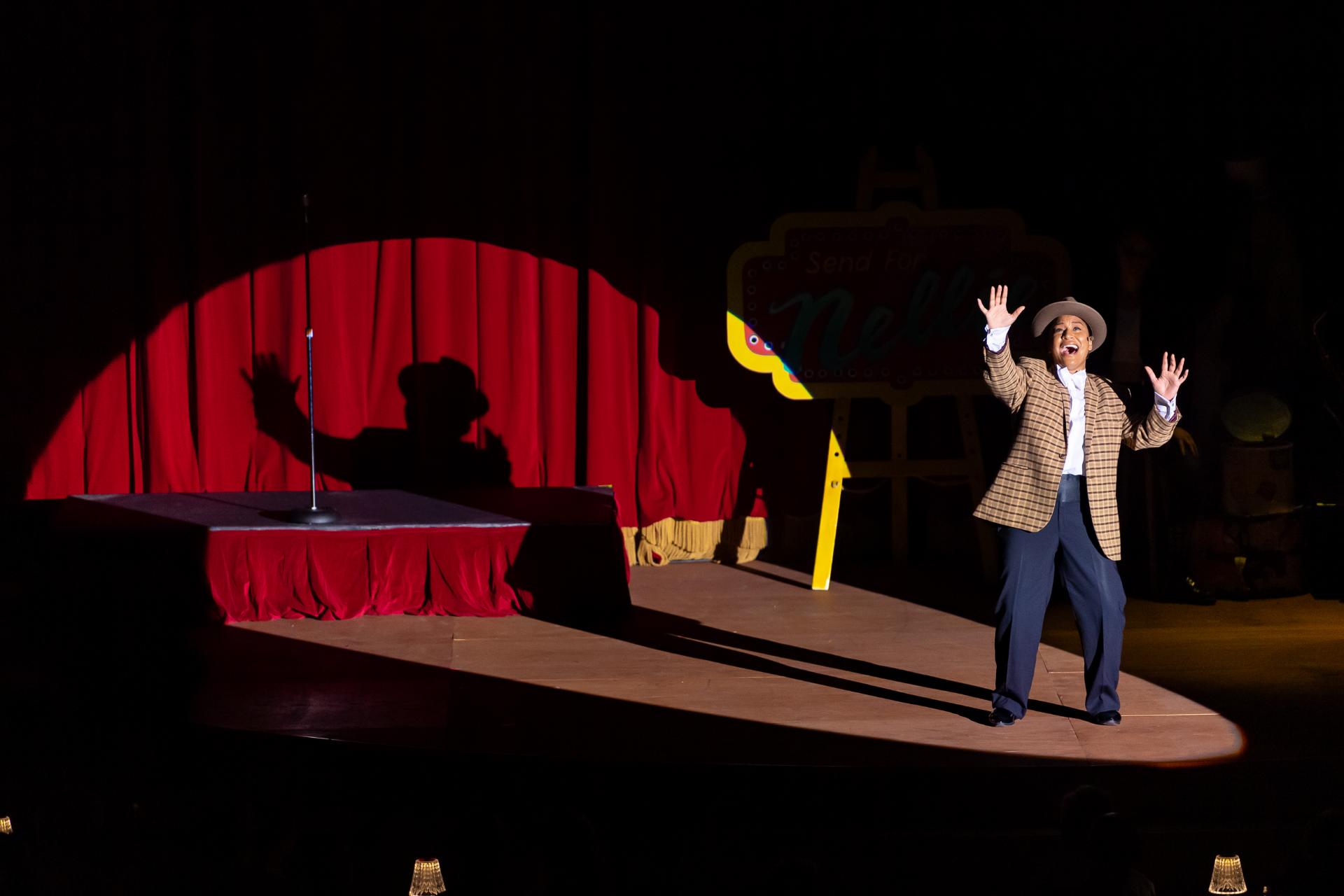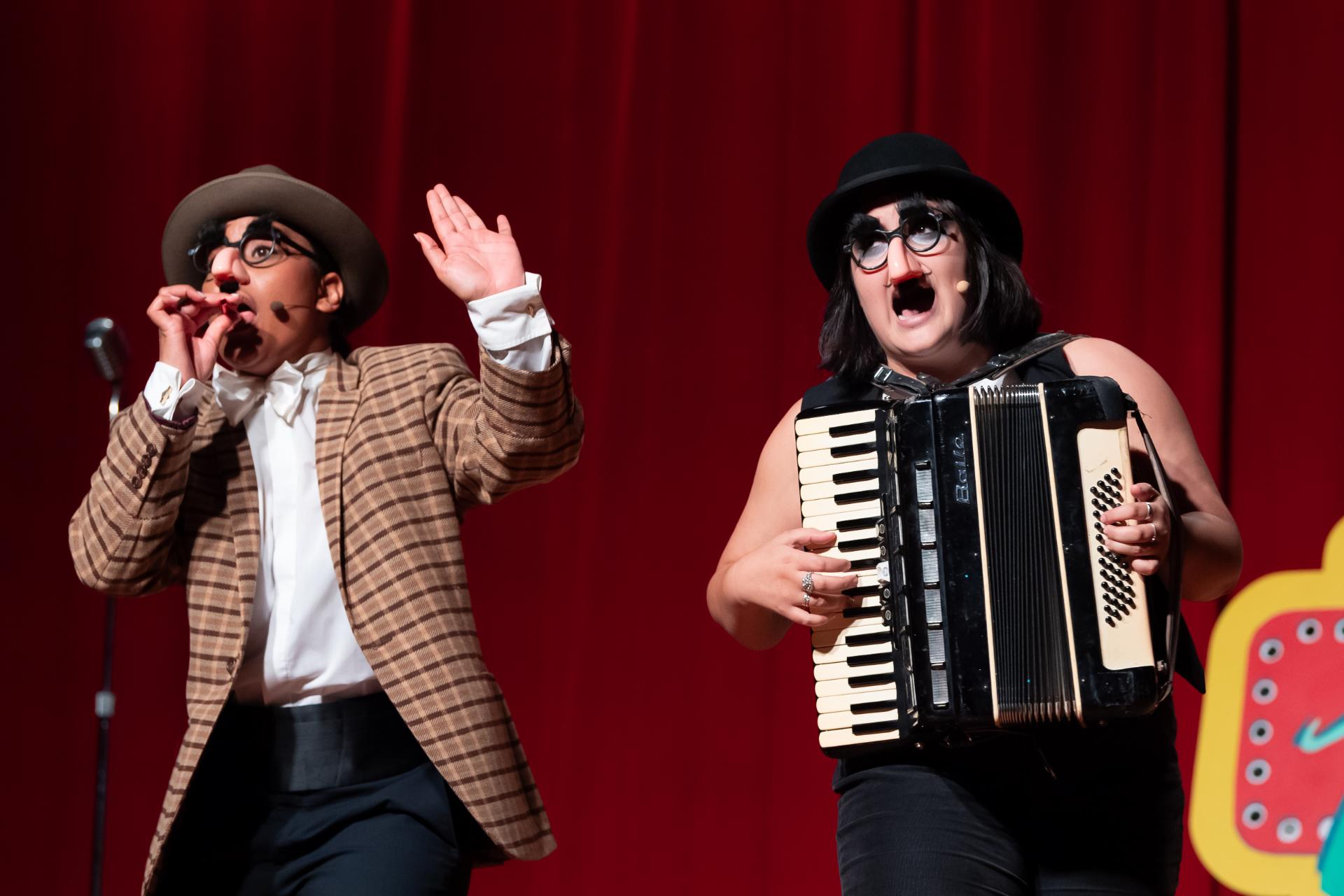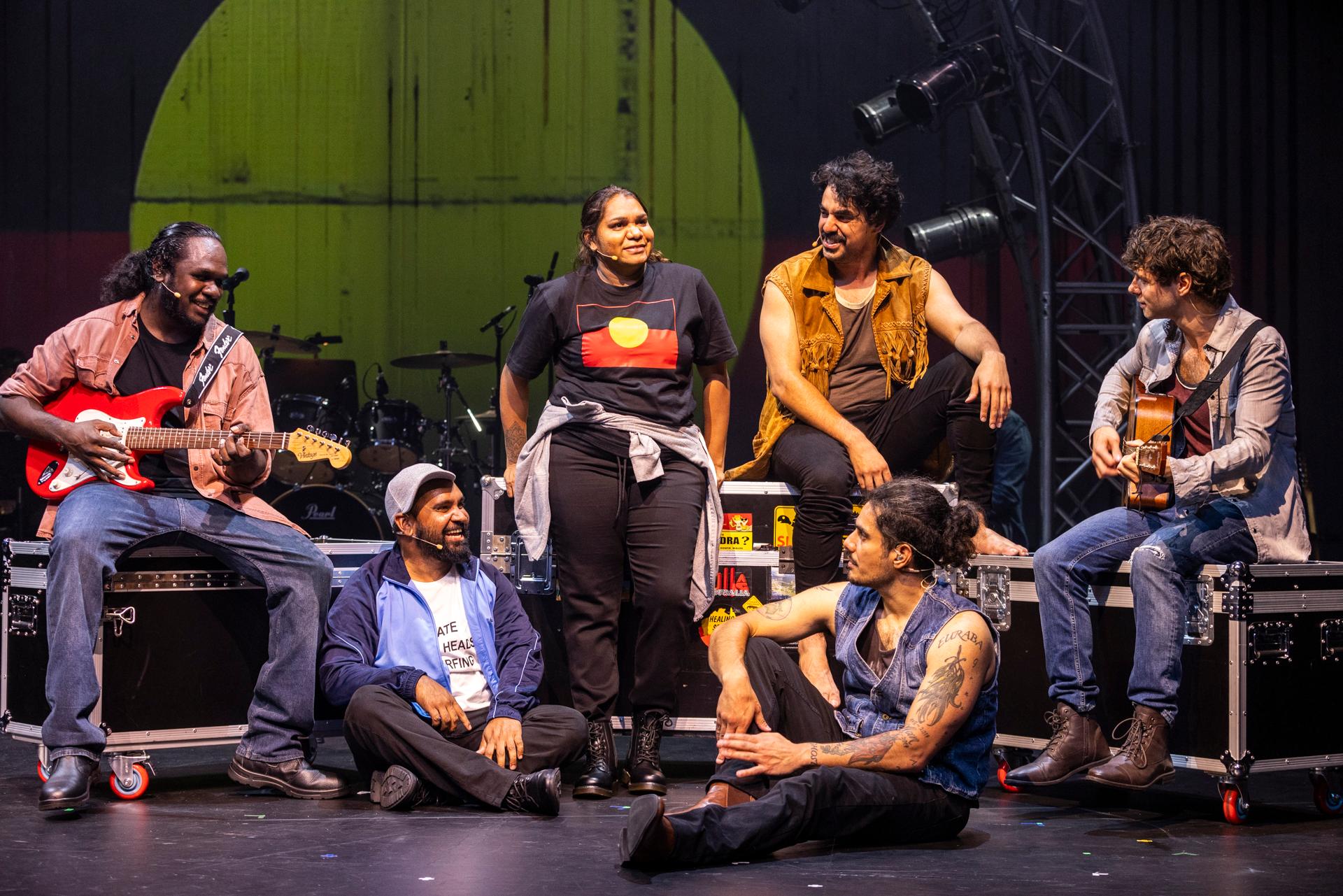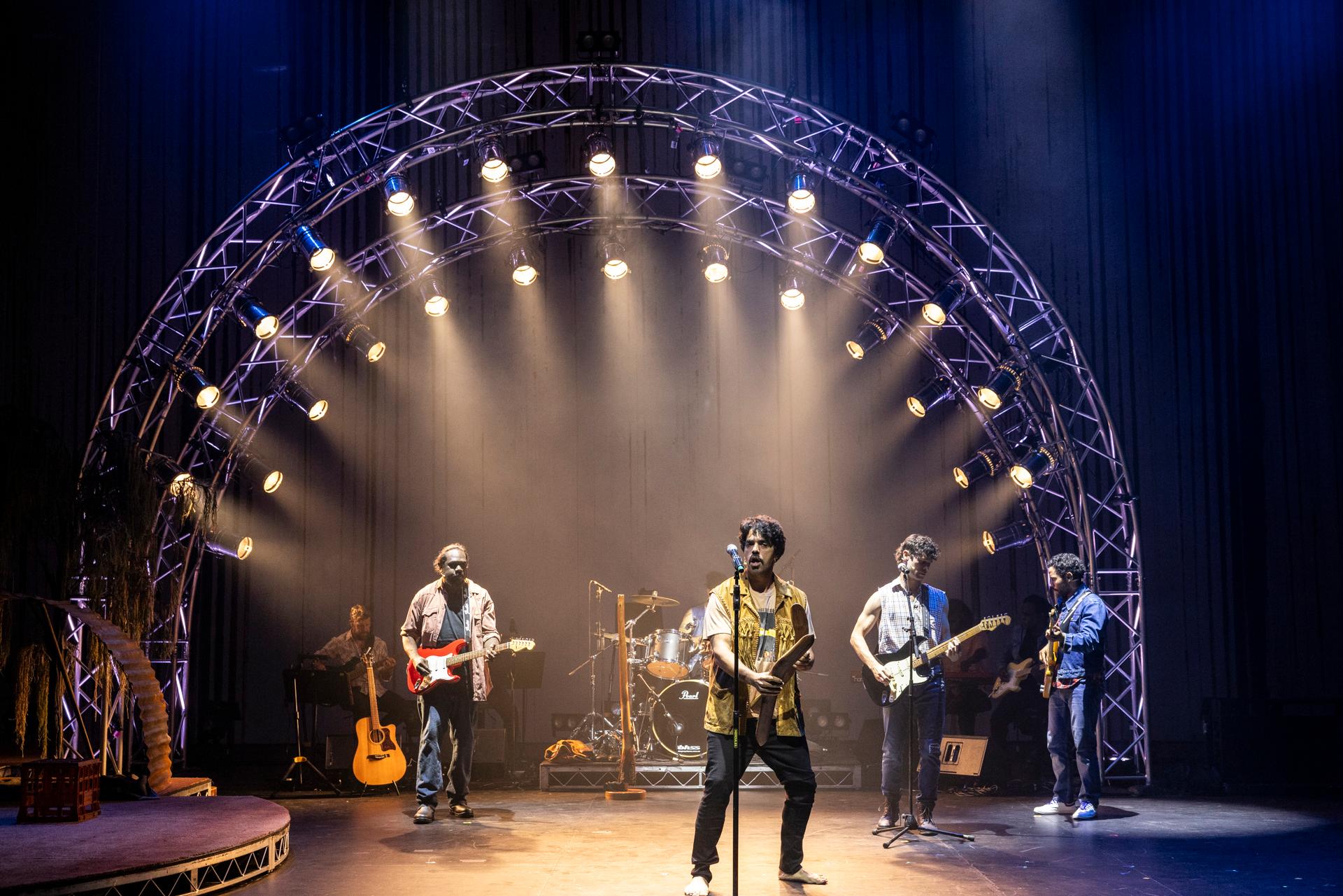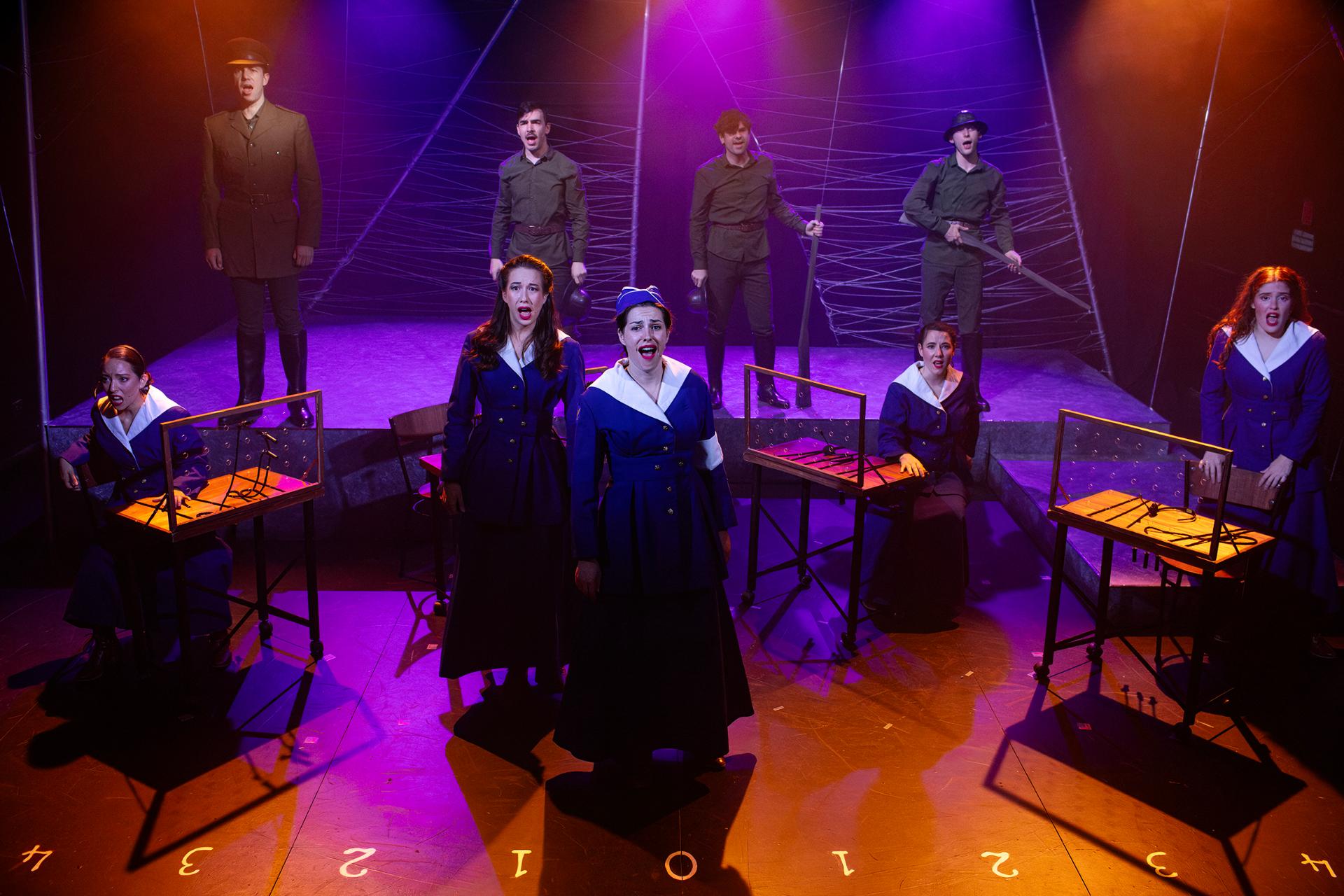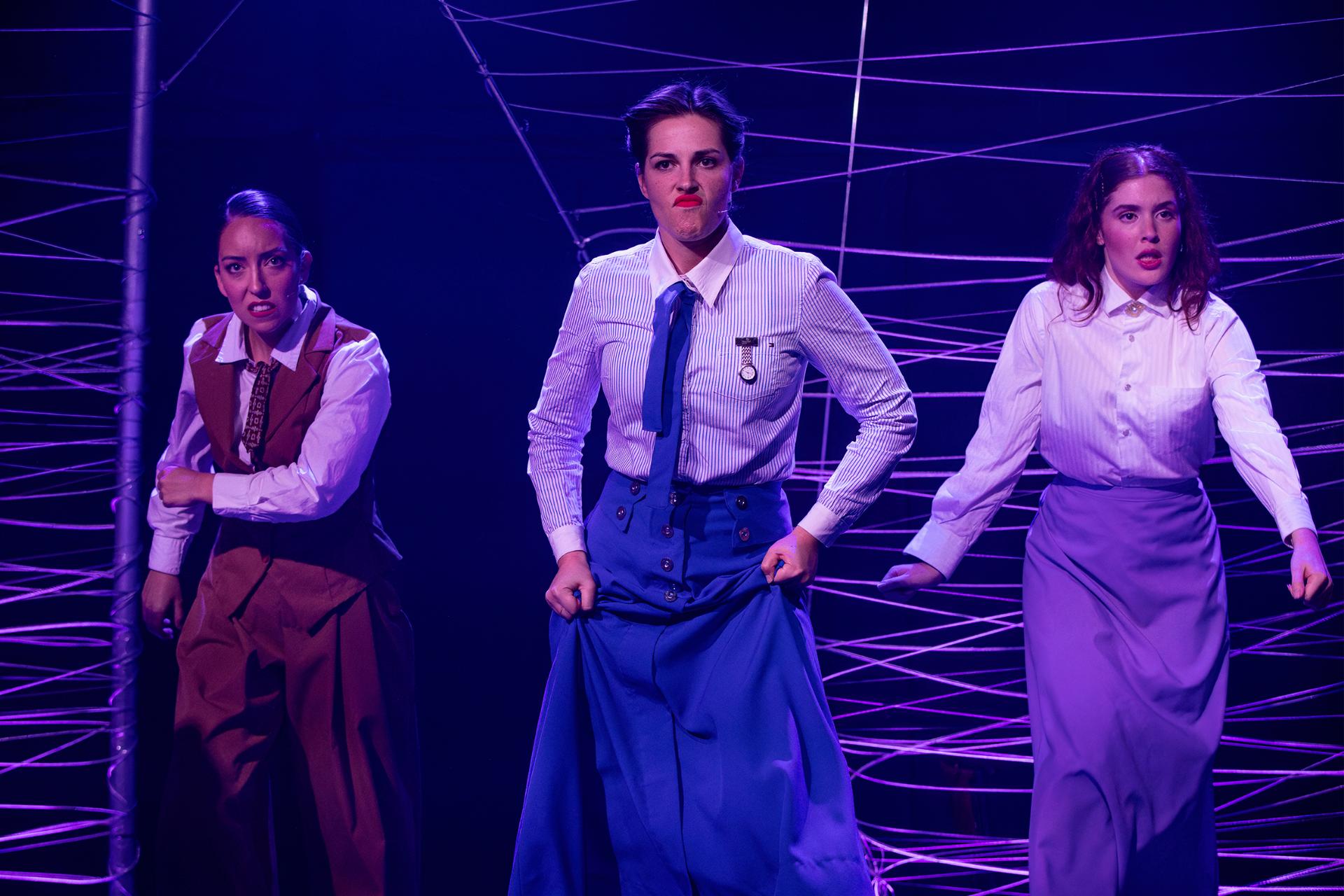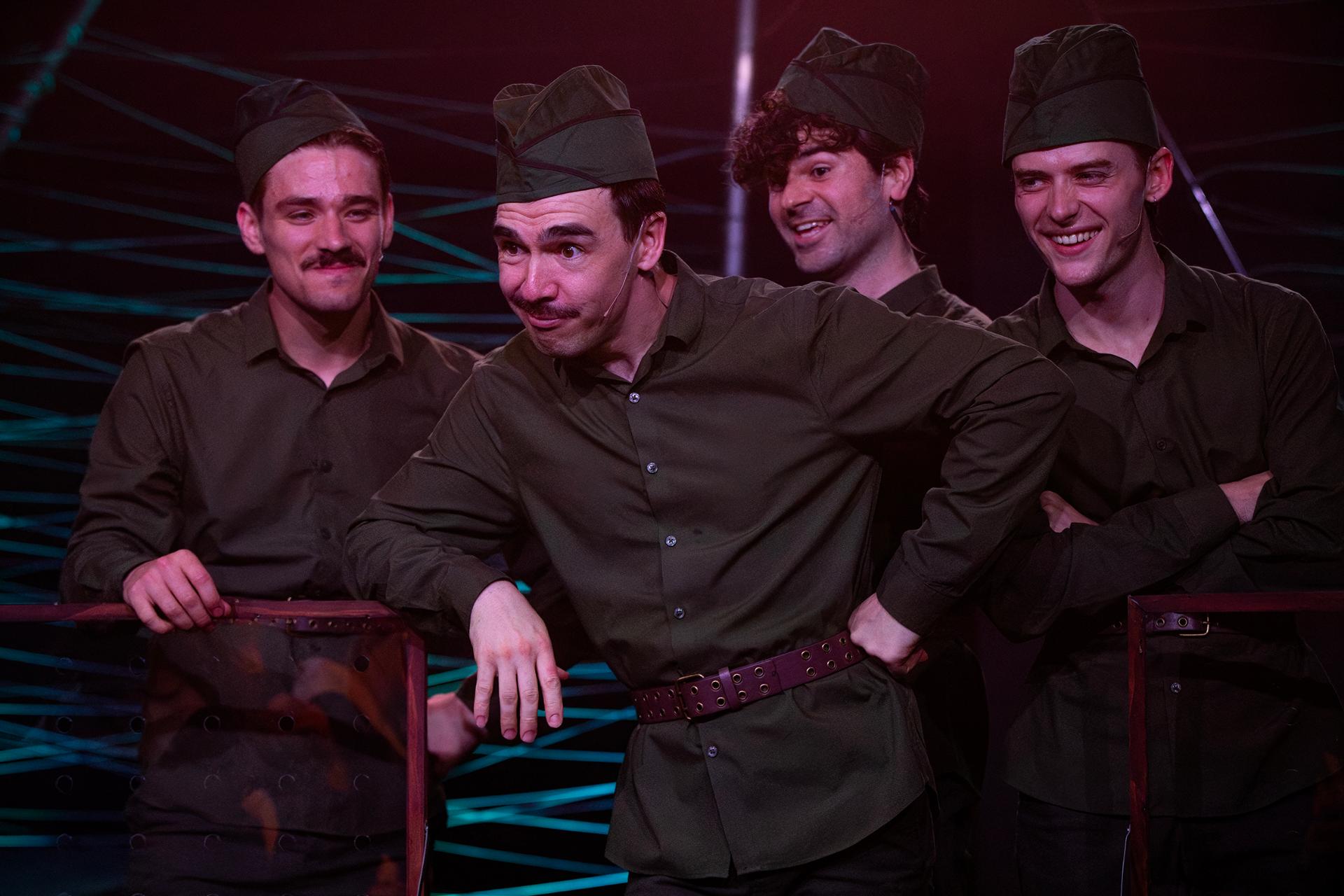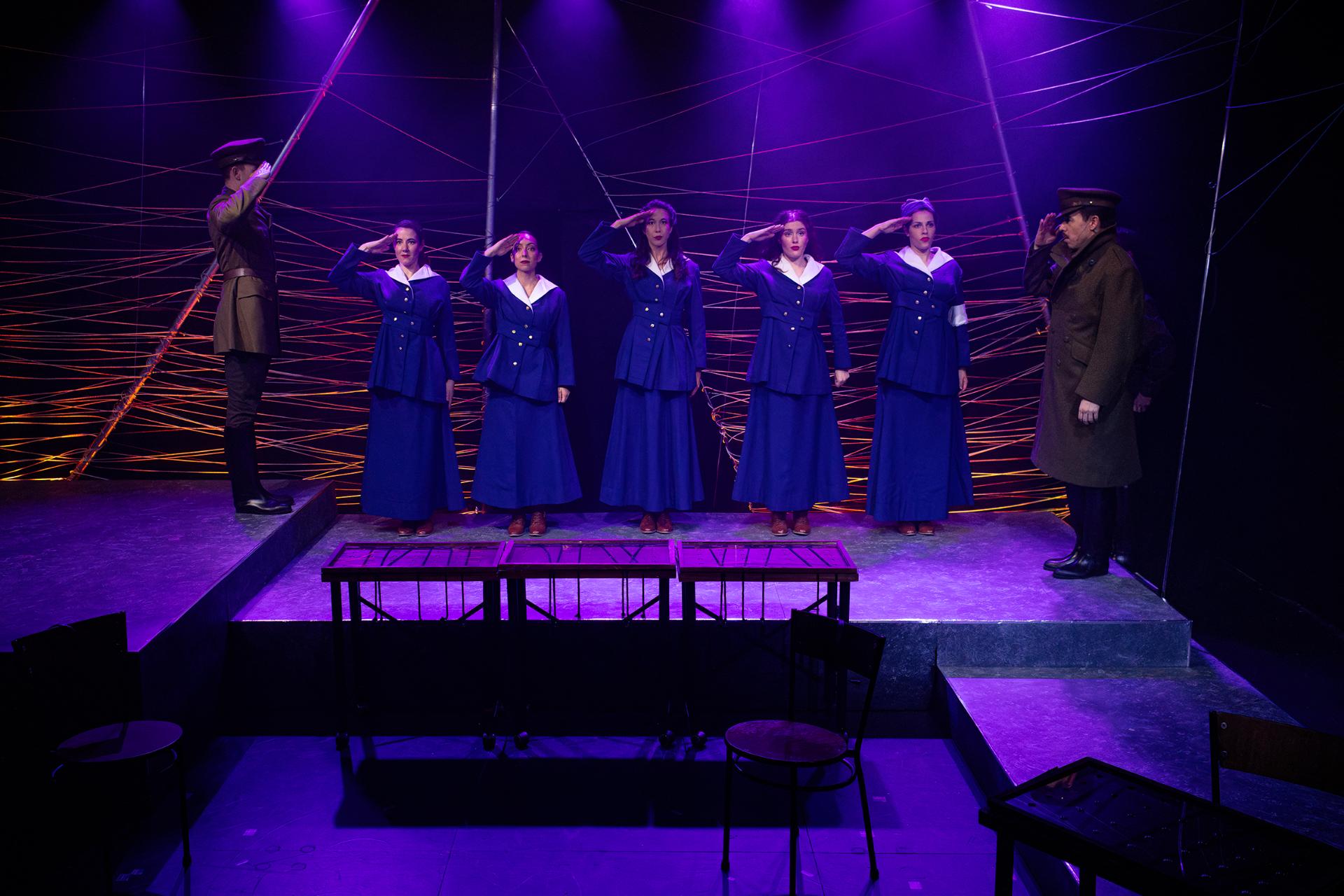



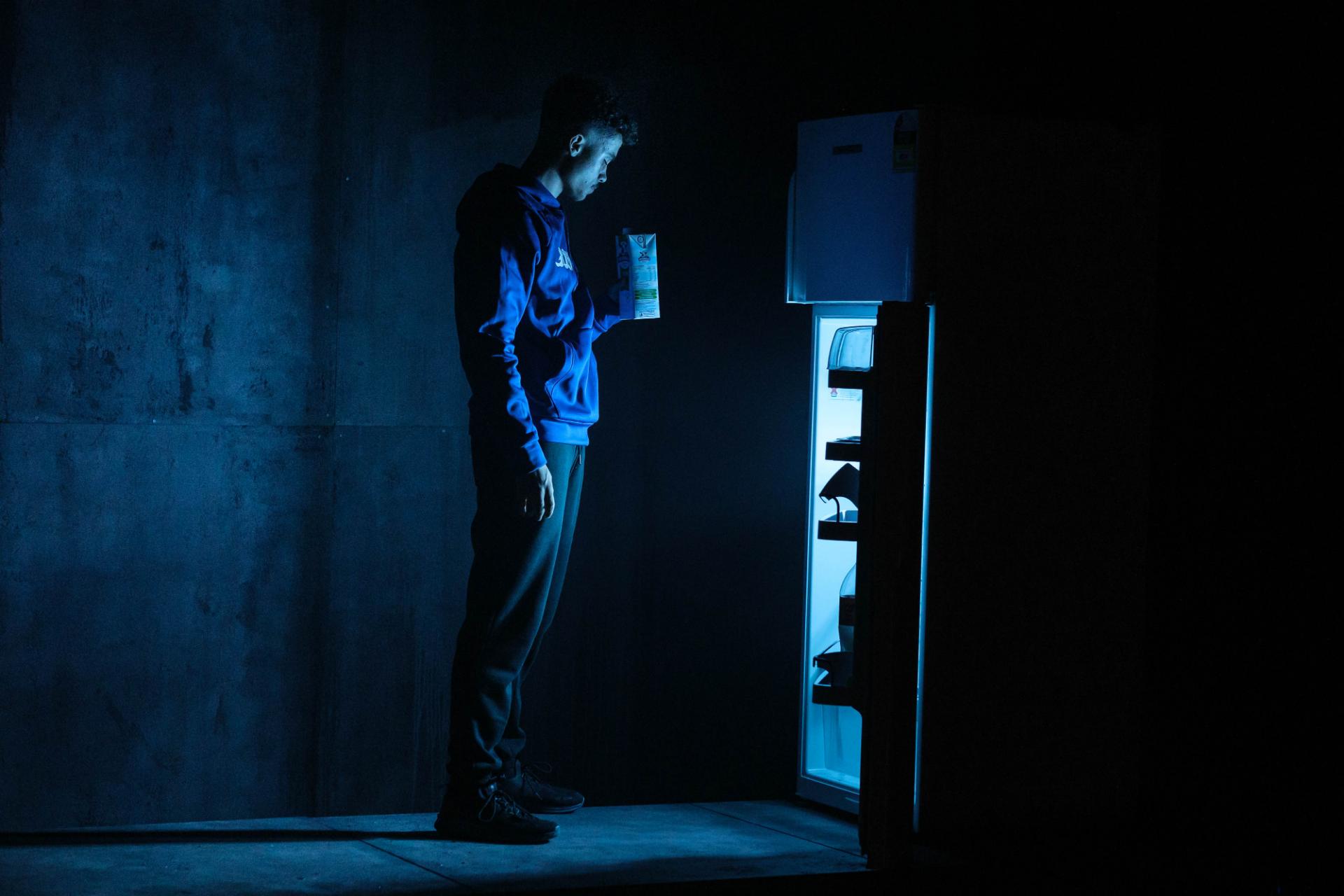
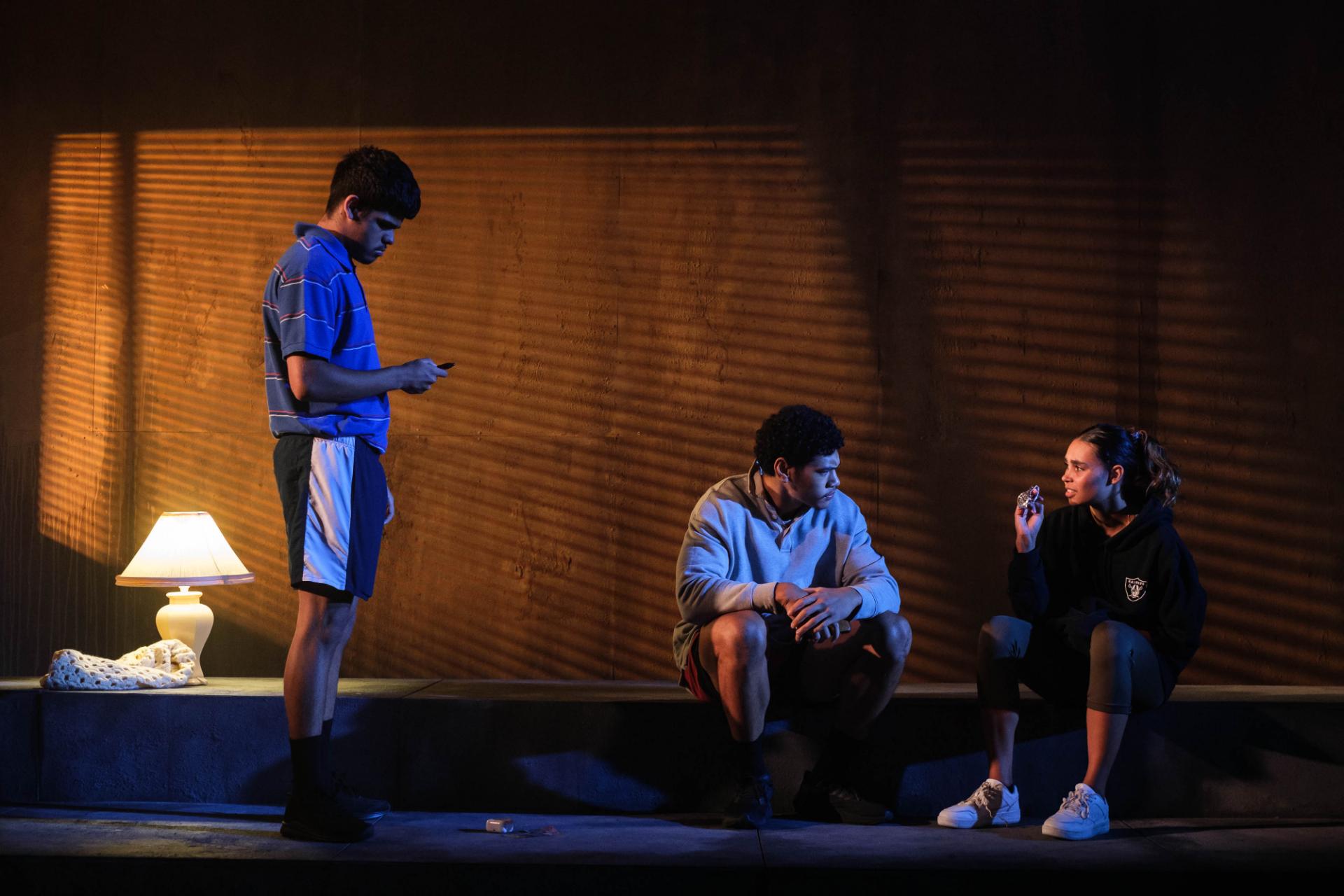



Venue: The Rebel Theatre (Sydney NSW), Jan 24 – Feb , 2024
Playwright: Hannah Belanszky
Director: Abbie-lee Lewis
Cast: Maliyan Blair, Nyasha Ogden, Wesley Patten, Ioane Sa’ula
Images by Clare Hawley
Theatre review
Teenagers in Hannah Belanszky’s Saplings are in the habit of running foul of the law. The system goes after them, always threatening to enforce punishment, but nothing is in place to ameliorate or mediate situations. Belanszky’s compassion and grace for her characters, demonstrates clearly that something is not working, or maybe something in the system is built intentionally to go against these Blak and brown kids.
Saplings delivers the full humanity of those labelled “wayward youth” or “juvenile delinquents”, often with great humour, offering authentic insight that prevents any viewer from regarding them as contemptible. Directed by Abbie-lee Lewis, we find ourselves instinctively developing affection for these vibrant souls, able to connect with each of them, beyond every boundary, whether they pertain to age, class or race.
An endearing cast ensures our investment for every anecdote in the episodic presentation. Maliyan Blair’s effervescence is an immense joy, Nyasha Ogden’s sass is a gratifying representation of budding feminism, Wesley Patten’s unwitting tenderness melts our hearts, and Ioane Sa’ula’s precise dynamism gives real emphasis, to many of Saplings‘ meaningful resonances.
Lights by Morgan Moroney offer sensitive calibrations to atmosphere. Angela Doherty’s costumes contribute to the authenticity of the characters, though at times, the distinctions may not be entirely clear when actors assume multiple roles. The set, co-designed by Moroney and Doherty, establishes with an appealing minimalism, a certain presence for places and circumstances, along with useful tiers that help make the staging visually appealing. Music and sound by Michael Weir manipulate accurately our emotional responses, especially effective with the incorporation of rap and hip hop created by those in our youth justice system. Also noteworthy, is Tim Dashwood’s joltingly kinetic choreography for fight sequences, contributing to the zeal of a show about today’s youth.
It is evident in Saplings that Blak kids are not a problem to be solved. It is colonialism that needs to retreat, and for rightful custodians of these lands to have substantially greater control, over the values we hold, the ways we live, and the bridges we build. In the play, we see future elders being beaten down continually, but their glow never diminishes. What needs to be provided is fortifying nourishment, instead of the toxicity being deployed persistently over recent centuries. The resilience of our oppressed is certain to prevail; we just have to make way for them.
